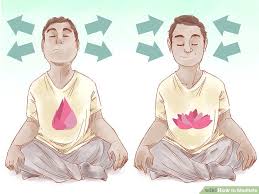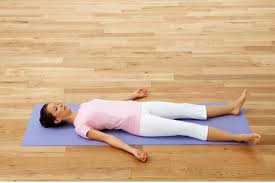["{{Saya telah|Saya} telah {berselancar|menjelajah} online lebih dari {tiga|3|2|4} jam hari ini, namun saya tidak pernah menemukan artikel menarik seperti milik Anda. {It's|It is} cukup berharga bagi saya. {Menurut pendapat saya|Secara pribadi|Dalam pandangan saya}, jika semua {webmaster|pemilik situs|pemilik situs web|pemilik web} dan blogger membuat konten yang baik seperti yang Anda lakukan, {internet|net|web} akan menjadi {lebih|a jauh lebih} berguna dari sebelumnya.|Saya {tidak bisa|tidak bisa} {menolak|menahan diri dari} berkomentar. {Sangat baik|Sempurna|Baik|Sangat baik} ditulis!|{Saya akan|Saya akan} {segera|segera} {pegang|ambil|kopling|genggam|rebut|ambil} {rss|rss feed} Anda karena saya {tidak bisa|tidak bisa} {dalam mencari|temukan|untuk menemukan layanan {email|e-mail} langganan {link|hyperlink} atau {newsletter|e-newsletter} Anda. Apakah {Anda punya|Anda} punya? {Tolong|Mohon} {izinkan|ijin|biarkan} saya {menyadari|mengenali|mengerti|mengenali|tahu} {sehingga|agar} saya {boleh saja|boleh|bisa} berlangganan. Terima kasih.|{Ini adalah|Saatnya} {tepat|sempurna|waktu terbaik} untuk membuatnya","en"]["merencanakan masa depan dan {sekarang} waktunya untuk berbahagia. {Saya telah|Saya telah} membaca posting ini dan jika saya bisa, saya {ingin|ingin|ingin} menyarankan Anda {beberapa|beberapa} hal menarik atau {saran|saran|tips}. {Mungkin|Mungkin} Anda {bisa|bisa} menulis artikel berikutnya yang mengacu pada artikel ini. Saya {ingin|ingin|ingin} membaca {lebih|lebih banyak lagi} hal tentang itu!|{Ini adalah|Ini} waktu {tepat|sempurna|terbaik} untuk membuat {beberapa|beberapa} rencana untuk {masa depan|jangka panjang|jangka panjang} dan {sekarang} waktu untuk bahagia. {Saya punya|Saya} {baca|pelajari} {posting|kirim|publikasikan|pasang} ini dan jika saya {boleh saja|boleh|bisa} saya {ingin|| ingin|ingin} {menyarankan|merekomendasikan|menasihati} Anda {sedikit|beberapa} {menarik|menarik|menarik perhatian} {hal|masalah} atau {saran|saran|tips}. {Mungkin|Mungkin} Anda {bisa|bisa} menulis artikel {berikutnya|berikutnya} {yang berhubungan dengan|mengacu pada|mengenai} artikel ini. Saya {ingin|ingin|ingin} {membaca|mempelajari} {lebih|lebih|lebih lagi} {hal|masalah} {kira-kira|tentang} itu!|{Saya punya|Saya sudah}","en"]["telah {berselancar|menjelajah} {online|on-line} {lebih dari|lebih dari} {tiga|3} jam {hari-hari ini|sekarang|hari ini|akhir-akhir ini|akhir-akhir ini}, {belum|tapi} saya {tidak pernah|sama sekali tidak} {ditemukan|menemukan} artikel {menarik|menarik|menarik perhatian} seperti milik Anda. {It's|It is} {nice|pretty|beautiful} {worth|value|price} {enough|cukup} untuk saya. {Menurut pendapat saya|Secara pribadi|Dalam pandangan saya}, jika semua {webmaster|pemilik situs|pemilik situs web|pemilik web} dan blogger membuat {tepat|bagus|luar biasa} {konten|materi konten} seperti {yang Anda lakukan|Anda mungkin did}, {internet|net|web} {akan|akan|mungkin|akan|mungkin|bisa|kemungkinan besar akan} {lebih|lebih banyak} {berguna|membantu} dari sebelumnya.|Ahaa, ini {bagus|menyenangkan|bagus|rewel} {diskusi|percakapan|dialog} {tentang|tentang|tentang|tentang topik} {artikel|posting|tulisan|paragraf} {di sini|di tempat ini} di {blog|weblog|halaman web|situs|situs web} ini, saya sudah membaca semua itu, jadi {sekarang|saat ini} saya juga berkomentar {di sini|di","en"]["tempat ini}.|Saya yakin {artikel|pos|tulisan|paragraf} ini telah menyentuh semua {pengguna|orang|pemirsa|pengunjung} internet, benar-benar {bagus|menyenangkan|bagus|rewel} {artikel|pos|tulisan|paragraf} tentang membangun {blog|weblog|webpage|website|web site} baru.|Wow, {artikel|posting|tulisan|paragraf} ini {bagus|menyenangkan|bagus|rewel}, {adik|adik perempuan} saya sedang menganalisis hal-hal {seperti|ini|macam-macam}, {jadi|demikian|Oleh karena itu} saya akan {beri tahu|informasikan|beri tahu|sampaikan} dia.|{Tersimpan sebagai favorit|bookmark!!}, {Saya sangat suka|Saya suka|Saya suka} {blog Anda|situs Anda|situs web Anda|situs web Anda}!|Sangat keren! Beberapa poin yang {sangat|sangat valid! Saya menghargai Anda {menulis ini|menulis ini} {artikel|posting|artikel} {dan|dan|serta|plus sisa} {site is|website is} {juga sangat|sangat|sangat|sangat|juga sangat|benar-benar} bagus.|Hai, {Saya percaya|Menurut saya} {ini luar biasa|ini luar biasa} {blog|situs web|situs web|situs}. Saya tersandung itu;) {I","en"]["akan|Saya akan|Saya akan ke|Saya boleh} {kembali|kembali|mengunjungi kembali} {sekali lagi|sekali lagi} {sejak saya|karena saya telah} {bookmark|buku ditandai|bertanda buku|disimpan sebagai favorit} itu. Uang dan kebebasan {adalah yang terbaik|adalah yang terhebat} cara untuk berubah, semoga Anda kaya dan terus {membantu|membimbing} {orang lain|orang lain}.|Wow! Saya sangat {mencintai|menikmati|menggali} template / tema dari {site|website|blog} ini. Sederhana, namun efektif. Seringkali {sangat sulit|sangat sulit|menantang|tangguh|sulit|sulit} untuk mendapatkan "keseimbangan sempurna" antara {kegunaan luar biasa|keramahan pengguna|kegunaan} dan {tampilan visual|daya tarik visual|penampilan}. Saya harus mengatakan {bahwa Anda|Anda memiliki|Anda} telah melakukan pekerjaan yang {mengagumkan|luar biasa|sangat bagus|luar biasa|fantastis|luar biasa|hebat} dengan ini. {Selain|Selain itu|Juga}, blog memuat {sangat|sangat|super} {cepat|cepat} untuk saya di {Safari|Internet explorer|Chrome|Opera|Firefox}. Blog {Luar Biasa|Luar Biasa|Luar Biasa|Luar Biasa}!|Ini {benar-benar|masuk","en"]["Fakta|benar-benar|benar-benar} {hebat|besar|mengesankan|indah|fantastis} ide tentang {tentang|tentang|tentang|tentang topik} blogging. Anda telah menyentuh beberapa {bagus|menyenangkan|bagus|rewel} {poin|faktor|hal} di sini. Dengan cara apapun teruskan wrinting.|{Saya suka|Saya sangat suka|Saya menikmati|Saya suka|Semua orang suka} apa yang kalian {ada|biasanya|cenderung} juga. {Jenis|Jenis|Jenis|Seperti|Jenis} pekerjaan cerdas dan {keterpaparan|liputan|pelaporan}! Pertahankan {luar biasa|hebat|sangat bagus|hebat|bagus|mengagumkan|fantastis|luar biasa|menakjubkan|luar biasa} karya kawan-kawan yang telah saya {tergabung || tambahkan|termasuk} kalian ke {| saya|kami || pribadi saya|blogroll saya sendiri.|{Halo|Halo|Halo|Halo|Halo|Hai}! Seseorang di grup {Myspace|Facebook} saya membagikan {situs|situs web} ini dengan kami, jadi saya datang untuk {mencobanya|lihat|lihat|lihat|lihat}. Saya pasti {menikmati|mencintai} informasi. Saya {book-marking|bookmarking} dan akan men-tweet ini ke pengikut saya!","en"]["{Hebat|Hebat|Hebat|Fantastis|Luar Biasa|Luar Biasa|Luar Biasa|Luar biasa} blog dan {luar biasa|hebat|brilian|luar biasa|hebat|luar biasa|fantastis|luar biasa|luar biasa} {gaya dan desain|desain dan gaya|desain}.|{Saya suka|Saya sangat suka|Saya menikmati|Saya suka|Semua orang suka} apa yang kalian {ada|biasanya|cenderung} juga. {Jenis|Jenis|Jenis|Seperti|Jenis} pekerjaan cerdas dan {keterpaparan|liputan|pelaporan}! Pertahankan karya {hebat|hebat|sangat bagus|hebat|bagus|mengagumkan|fantastis|luar biasa|luar biasa|luar biasa} kawan-kawan, saya telah {memasukkan|menambahkan|menyertakan} kalian ke {| my|our|my personal|my own} blogroll.|{Halo|Halo|Halo|Hai|Halo|Hai} maukah Anda {menyatakan|berbagi} platform blog mana yang Anda {kerjakan|gunakan}? Saya {mencari|berencana|akan} untuk memulai blog saya sendiri {dalam waktu dekat|segera} tetapi saya mengalami waktu yang {sulit|sulit|sulit} {membuat keputusan|memilih|memilih|memutuskan} antara BlogEngine / Wordpress / B2evolution dan Drupal. Alasan saya bertanya adalah karena {design and","en"]["style|design|layout} tampak berbeda dari kebanyakan blog dan saya mencari sesuatu yang {benar-benar unik|unik}. PS {My sorry|Apologies|Sorry} karena {get|being} keluar dari topik tapi saya harus bertanya!|{Halo|Halo|Hai|Halo|Halo|Hai} maukah Anda memberi tahu saya {webhost|perusahaan hosting|host web} mana yang Anda {memanfaatkan|bekerja dengan|menggunakan}? Saya telah memuat blog Anda di 3 {benar-benar berbeda|berbeda} {browser internet|browser web|browser} dan saya harus mengatakan bahwa blog ini memuat jauh lebih cepat {lebih cepat} daripada kebanyakan. Dapatkah Anda {menyarankan|merekomendasikan} penyedia {internet hosting|web hosting|hosting} yang baik dengan harga yang {jujur | masuk akal|adil}? {Terima kasih banyak|Kudos|Cheers|Terima kasih|Terima kasih banyak|Terima kasih}, saya menghargainya!|{Saya suka|Saya sangat suka|Saya suka|Semua orang suka} ini {ketika orang|ketika individu|ketika orang|kapan pun orang} {berkumpul|berkumpul} dan berbagi {opini|pemikiran|pandangan|ide}. Hebat {blog|website|site}, {pertahankan|lanjutkan kerja bagus|patuhi itu}!|Terima kasih untuk","en"]["artikel {menguntungkan|bagus}. Itu sebenarnya adalah akun hiburan. Nantikan {jauh|lebih} lagi yang menyenangkan dari Anda! {By the way|Namun}, bagaimana {can|could} kita berkomunikasi?|{Halo|Halo|Halo|Halo|Hei} hanya ingin memberi tahu Anda sekilas. {Teks|kata-kata} di {content|post|article} Anda sepertinya berjalan dari layar di {Ie|Internet explorer|Chrome|Firefox|Safari|Opera}. Saya tidak yakin apakah ini adalah masalah {format|pemformatan} atau ada hubungannya dengan kompatibilitas {browser web|browser internet|browser} tapi saya {pikir|pikir} saya akan mengirim pesan untuk memberi tahu Anda. Namun, {style and design|design and style|layout|design} tampak hebat! Semoga Anda segera mendapatkan {problem|issue} {solved|solving|fix}. {Kudos|Cheers|Banyak terima kasih|Terima kasih}|Ini adalah topik {yaitu|itu|yaitu} {dekat dengan|dekat dengan} hatiku... {Bersulang|Terima kasih banyak|Salam sukses|Hati-hati|Terima kasih}! {Where|Exactly where} adalah detail kontak Anda?|Ini sangat {mudah|sederhana|bebas masalah|langsung|tanpa usaha}","en"]["temukan {topic|matter} apa pun di {net|web} dibandingkan dengan {books|textbooks}, karena saya menemukan {artikel|posting|tulisan|paragraf} ini di {website|web site|site|web page }.|Apakah {site|website|blog} Anda memiliki halaman kontak? Saya mengalami {waktu yang sulit|masalah|masalah} menemukannya tetapi, saya ingin {mengirim|menembak} Anda {e-mail|email}. Saya punya beberapa {ide kreatif|rekomendasi|saran|ide} untuk blog Anda yang mungkin menarik untuk Anda dengar. Apa pun pilihannya, {situs|situs web|blog} yang hebat dan saya berharap dapat melihatnya {mengembangkan|meningkatkan|perluas|tumbuh} dari waktu ke waktu.|{Hola|Halo|Hai|Halo|Salam}! Saya telah {mengikuti|membaca} {situs|situs web|situs|weblog|blog} Anda untuk {waktu yang lama|beberapa waktu|beberapa waktu} sekarang dan akhirnya mendapatkan {keberanian|keberanian} untuk terus maju dan memberi Anda teriakan dari {New Caney|Kingwood|Huffman|Porter|Houston|Dallas|Austin|Lubbock|Rendah Hati|Atascocita} {Tx|Texas}! Hanya ingin {memberitahu Anda|mention|say} pertahankan {fantastis|luar biasa|hebat|bagus} {pekerjaan|kerja}!|Salam pembuka","en"]["dari {Idaho|Carolina|Ohio|Colorado|Florida|Los angeles|California}! Saya {bosan menangis|bosan sampai mati|bosan} di tempat kerja, jadi saya memutuskan untuk {memeriksa|menjelajahi} {situs|situs web|blog} Anda di iphone saya saat istirahat makan siang. Saya {menikmati|sangat menyukai|menyukai} {pengetahuan|info|informasi} yang Anda {sekarang|berikan} di sini dan tidak sabar untuk melihatnya ketika saya tiba di rumah. Saya {kaget|kagum|terkejut} melihat betapa {quick|fast} blog Anda dimuat di {mobile|cell phone|phone} saya.. Saya bahkan tidak menggunakan WIFI, hanya 3G.. {Anyhow|Anyways}, {luar biasa|luar biasa|sangat bagus|luar biasa|bagus|luar biasa|fantastis|luar biasa|hebat} {situs|blog}!|Ini {seperti Anda|seperti Anda} {baca|pelajari} {pikiran|pikiran} saya! Anda {tampak|tampak} {memahami|mengetahui|memahami} {begitu banyak|banyak} {kira-kira|tentang} ini, {seperti Anda|seperti Anda} menulis {buku|e-book|panduan|e-book|e book} di dalamnya atau sesuatu. {I think|I feel|I believe} {that you|that you simple|that you just} {could|can} do with {some|a few} {% | pc|persen} untuk {force|pressure|drive|kekuatan} pesan","en"]["{rumah|rumah} {sedikit|sedikit}, {namun|tapi} {selain|bukannya} itu, {ini|itu adalah} blog {hebat|luar biasa|fantastis|luar biasa|luar biasa}. {A great|An excellent|A fantastic} bacaan. {Saya akan|Saya akan} {pasti|pasti} kembali.|Saya mengunjungi {beberapa|banyak|beberapa|berbagai} {situs web|situs|situs web|halaman web|blog} {tetapi|kecuali|namun} audio {kualitas|fitur} untuk lagu audio {saat ini|sekarang|ada} di ini {website|situs web|situs|halaman web} adalah {benar-benar|sebenarnya|pada kenyataannya|benar-benar|benar-benar} {luar biasa|luar biasa|luar biasa|menakjubkan|luar biasa}.|{Halo|Halo|Hai|Halo}, saya membaca blog Anda {sesekali|dari waktu ke waktu} dan saya memiliki yang serupa dan saya hanya {bertanya-tanya|penasaran} apakah Anda mendapatkan banyak {komentar|tanggapan|umpan balik|komentar}? Jika demikian, bagaimana Anda {mencegah|mengurangi|menghentikan|melindunginya}, plugin apa pun, atau apa pun yang dapat Anda {sarankan|sarankan|rekomendasikan}? Saya mendapatkan begitu banyak akhir-akhir ini sehingga membuat saya {gila|gila|gila} jadi {bantuan|bantuan|dukungan} apa pun sangat banyak","en"]["dihargai.|Salam pembuka! Saran {Sangat membantu|Sangat berguna} {dalam ini|khusus ini} {artikel|posting}! {Ini adalah|Ini adalah} perubahan kecil {yang membuat|yang akan membuat|yang menghasilkan|yang akan membuat} {terbesar|terbesar|terbesar|yang paling penting|paling signifikan} perubahan. {Terima kasih banyak|Terima kasih|Banyak terima kasih} telah berbagi!|{Sungguh|Saya sungguh-sungguh|Saya sungguh-sungguh|Saya sungguh-sungguh} menyukai {blog Anda|situs Anda|situs web Anda}.. Warna & tema {Sangat bagus|Luar biasa|Menyenangkan|Hebat}. Apakah Anda sendiri yang {membuat|mengembangkan|membuat|membangun} {situs web ini|situs ini|situs web ini|situs menakjubkan ini}? Harap balas kembali karena saya {mencari untuk|mencoba|berencana untuk|ingin|berharap untuk|mencoba untuk} membuat {milik saya|milik saya|pribadi saya} {blog|situs web|situs} dan {ingin ke|ingin|akan senang untuk} {tahu|belajar|mencari tahu} dari mana Anda mendapatkan ini atau {apa|persis apa tema|hanya apa} {disebut|dinamai}. {Terima kasih|Terima kasih banyak|Terima kasih|Cheers|Hargai|Kudos}!|{Halo yang di sana|Halo yang di sana|Halo}! Ini","en"]["{posting|artikel|posting blog} {tidak bisa|tidak bisa} ditulis {lebih baik|jauh lebih baik}! {Reading through|Looking at|Going through|Looking through} {post|article} ini mengingatkan saya pada teman sekamar saya sebelumnya! Dia {selalu|terus-menerus|terus-menerus} terus {membicarakan|berkhotbah tentang} ini. {Saya akan|Saya akan|Saya akan|Saya pasti akan} {meneruskan|mengirim} {artikel ini|informasi ini|posting ini} kepadanya. {Cukup yakin|Cukup yakin} {dia akan|dia akan|dia akan} {membaca dengan baik|membaca dengan sangat baik|Selamat bersenang-senang}. {Terima kasih untuk|Terima kasih untuk|Terima kasih banyak untuk|Saya menghargai Anda untuk} berbagi!|{Wow|Whoa|Luar Biasa|Luar Biasa}! Blog ini terlihat {persis|hanya} seperti blog lama saya! Ada {sepenuhnya|sepenuhnya|sama sekali} berbeda {topic|subjek} tetapi memiliki {layout|tata letak halaman} dan desain yang hampir sama. Pilihan warna yang {Luar Biasa|Luar Biasa|Hebat|Luar Biasa|Luar biasa}!|{Ada|Ada} {pasti|pasti} {banyak yang harus|banyak untuk} {tahu tentang|pelajari tentang|cari tahu tentang} {subjek|topik|masalah} ini. {Saya suka|Saya","en"]["cinta|Saya sangat suka} {semua|semua} poin {yang Anda buat|yang Anda buat|yang telah Anda buat}.|{Anda membuat|Anda membuat|Anda telah membuat} beberapa poin yang {layak|bagus|sangat bagus} di sana. Saya {melihat|memeriksa} {di internet|di web|di internet} {untuk info lebih lanjut|untuk informasi lebih lanjut|untuk mengetahui lebih lanjut|untuk mempelajari lebih lanjut|untuk informasi tambahan} tentang masalah ini dan menemukan {kebanyakan individu|kebanyakan orang} akan setuju dengan pandangan Anda pada {situs web ini|situs ini|situs web ini}.|{Hai|Halo|Halo|Apa kabar}, saya {masuk ke|memeriksa|membaca} {barang baru|blog|blog} {rutin|seperti setiap minggu|setiap hari|secara teratur}. Gaya {bercerita|menulis|humoristic} Anda {mengagumkan|jenaka}, teruslah {lakukan apa yang Anda lakukan|semoga berhasil|berhasil}!|Saya {hanya|hanya} {tidak bisa|tidak bisa} {meninggalkan|berangkat|pergi} {situs|situs web|situs web} Anda {sebelum|sebelum} menyarankan bahwa saya {benar-benar|sangat|sebenarnya} {menikmati|mencintai} {standar|yang biasa} {informasi|info} {orang|individu} {pasokan|menyediakan} {untuk|Anda|di|di","en"]["Anda|kepada Anda} {pengunjung|tamu}? Apakah {akan|akan} {kembali|lagi} {sering|secara teratur|terus-menerus|terus-menerus|tanpa henti|sering|terus-menerus} {untuk|untuk} {memeriksa|memeriksa|memeriksa|memeriksa|memeriksa pemeriksaan silang} posting baru|{Saya ingin|Saya perlu|Saya ingin|Saya perlu} berterima kasih atas bacaan yang {hebat|luar biasa|luar biasa|luar biasa|bagus|sangat bagus} ini!! Saya {pasti|pasti|benar-benar} {menikmati|mencintai} setiap {sedikit|sedikit} itu. {Saya punya|Saya punya|Saya punya} Anda {bookmark|buku ditandai|bertanda buku|disimpan sebagai favorit} {untuk melihat-lihat|untuk melihat pos baru {barang yang Anda|hal-hal yang Anda}…|{Hai|Halo|Halo|Ada apa}, hanya ingin {menyebutkan|mengatakan|memberi tahu Anda}, saya {menikmati|menyukai|menyukai} {artikel|posting|posting blog} ini. Itu {menginspirasi|lucu|praktis|membantu}. Terus posting!|{Halo|Halo}, saya menikmati membaca {semua|melalui} {artikel|posting|posting artikel} Anda. Saya {suka|ingin} menulis sedikit komentar untuk mendukung Anda.|Saya {selalu|terus-menerus|setiap waktu} menghabiskan setengah jam saya untuk membaca ini","en"]["{blog|weblog|halaman web|situs|situs web} {artikel|posting|artikel atau ulasan|konten} {setiap hari|setiap hari|setiap hari|sepanjang waktu} bersama dengan {cangkir|mug} kopi.|Saya {selalu|untuk sepanjang waktu|sepanjang waktu|terus-menerus|setiap waktu} mengirim email {blog|weblog|halaman web|situs web|situs web} halaman kiriman ini ke semua {teman|rekan|kontak} saya, {karena|sejak|sebagai|Karena itu} kalo suka membacanya {lalu|setelah itu|next|sesudahnya} {friends|links|contacts} saya juga.|{Coder|programmer|developer} saya mencoba untuk {membujuk|meyakinkan} saya untuk pindah ke.net dari PHP. Saya selalu tidak menyukai gagasan itu karena {biaya|biaya}. Tapi dia tetap mencoba. Saya telah menggunakan {Movable-type|WordPress} di {sejumlah|berbagai|banyak|beberapa|berbagai} situs web selama sekitar satu tahun dan saya {gugup|cemas|khawatir|khawatir} tentang beralih ke platform lain. Saya telah mendengar hal-hal {fantastis|sangat bagus|luar biasa|hebat|bagus} tentang blogengine.net. Apakah ada cara agar saya dapat {mentransfer|import} semua wordpress saya","en"]["{content|posts} ke dalamnya? Bantuan {apa saja|Apa saja} akan {benar-benar|sangat} dihargai!|{Halo|Hai|Halo|Halo|Halo|Selamat siang}! Saya berani bersumpah bahwa saya telah {pernah ke|mengunjungi} {blog ini|situs web ini|situs web ini|situs ini|blog Anda} sebelumnya, tetapi setelah {menjelajahi|melalui|melihat-lihat} {beberapa dari|beberapa dari|banyak dari} {kiriman|artikel} saya menyadari itu baru bagi saya. {Ngomong-ngomong|Bagaimanapun|Meskipun demikian|Terlepas}, saya {pasti|pasti} {senang|senang|senang} {Saya menemukan|Saya menemukan|Saya menemukan|Saya tersandung di atasnya} dan saya akan {bookmark|buku -menandai} dan memeriksanya kembali {sering|secara teratur|sering}!|{Hebat|Hebat|Hebat} {artikel|karya}! {This is|That is} {type of|the kind of} {informasi|info} {yang dimaksudkan untuk|yang seharusnya|yang harus} dibagikan {around the|across the} {web|internet|net }. {Aib|Malu} di {the {seek|search} engine|Google} karena {sekarang tidak|tidak|tidak lagi} memposisikan ini {posting|kirim|terbitkan|pasang} {atas|lebih tinggi}! Ayo dan","en"]["{berbicara dengan|berdiskusi dengan|meminta saran dari|kunjungi|berkonsultasi dengan} {situs|situs web|situs web} saya. {Terima kasih|Terima kasih} =)|Heya {I'm|i am} untuk pertama kalinya di sini. Saya {menemukan|menemukan} papan ini dan saya merasa itu {benar-benar|benar-benar} berguna & membantu saya {banyak|banyak}. Saya berharap dapat memberikan sesuatu kembali dan {membantu|membantu} orang lain seperti Anda {membantu|membantu} saya.|{Hai|Halo|Halo|Halo|Halo|Halo|Salam}, {Saya rasa|Saya percaya|Saya percaya|Saya rasa|Tidak ada keraguan bahwa} {situs Anda|situs web Anda|situs web Anda|blog Anda} {mungkin|mungkin|bisa|bisa jadi|bisa jadi} memiliki kompatibilitas {browser|browser internet|web browser} {masalah|masalah}. {When I|When I} {look at your|see at your} {website|web site|site|blog} di Safari, kelihatannya baik-baik saja {tapi ketika|bagaimana pun|namun, jika|bagaimanapun, saat} dibuka di {Internet Explorer|IE|IE}, {ada|punya} beberapa masalah yang tumpang tindih. {Saya hanya|Saya hanya|Saya hanya} ingin {memberi Anda|memberi Anda} pemberitahuan cepat! {Selain itu|Selain itu|Selain itu","en"]["itu|Selain itu}, {fantastis|luar biasa|hebat|luar biasa} {blog|situs web|situs}!|{Seseorang|Seseorang|Seseorang} {harus|pada dasarnya} {mengulurkan tangan|membantu|membantu} untuk membuat {serius|kritis|secara signifikan|sangat} {artikel|posting} {Saya akan|Saya mungkin|Saya akan} menyatakan. {Ini adalah|Itulah} {pertama|pertama kali} saya sering mengunjungi {halaman web|halaman situs web} dan {sampai saat ini|sejauh ini|sejauh ini|hingga sekarang}? Saya {kagum|terkejut} dengan {penelitian|analisis} yang Anda buat untuk {membuat|membuat} {ini aktual|khusus ini} {posting|kirim|publikasikan|pasang} {luar biasa|menakjubkan|luar biasa}. {Hebat|Luar Biasa|Fantastis|Luar Biasa|Luar Biasa} {tugas|proses|aktivitas|pekerjaan}!|Heya {saya|saya} untuk {pertama|pertama} kali di sini. Saya {menemukan|menemukan} papan ini dan saya {dalam menemukan|menemukan|untuk menemukannya} Papan ini {benar-benar|benar-benar} {berguna|membantu} & membantu saya {banyak|banyak}. {Saya berharap|Saya berharap|Saya berharap} {memberi|menawarkan|menyediakan|untuk mempresentasikan} {sesuatu|satu hal} {kembali|lagi} dan {membantu|membantu} orang lain {seperti Anda|seperti kamu}","en"]["{membantu|membantu} saya.|{Halo|Hai|Halo|Halo|Halo|Selamat siang|Halo}! {Saya hanya|Saya hanya} {ingin|ingin|ingin} {memberi Anda|menawarkan Anda a} {besar|besar} jempol {untuk|untuk Anda} {hebat|luar biasa} {info|informasi} {Anda punya|Anda punya|Anda punya} {di sini|di sini} pada kiriman ini. {Saya akan|Saya akan|Saya} {kembali ke|kembali ke} {blog Anda|situs Anda|situs web Anda|situs web Anda} untuk lebih segera.|Saya {selalu|sepanjang waktu|setiap waktu} dulu {membaca|belajar} {artikel|posting|tulisan|paragraf} di surat kabar tapi sekarang karena saya adalah pengguna {internet|web|net} {jadi|jadi|oleh karena itu} mulai sekarang saya menggunakan net untuk {artikel|posting|artikel atau ulasan|konten}, terima kasih kepada web.|{Cara|metode|cara|mode} Anda dari {mendeskripsikan|menjelaskan|menceritakan} {semuanya|semua|semuanya} dalam {artikel|posting|tulisan|paragraf} ini {benar-benar|sebenarnya|sebenarnya|benar-benar|benar-benar} {bagus|menyenangkan|baik|rewel}, {semua|semua orang} {bisa|bisa|mampu} {mudah|tanpa","en"]["kesulitan|tanpa susah payah|cukup} {mengerti|tahu|waspada}, Terima kasih banyak.|{Hai|Halo} di sana, {Saya menemukan|Saya menemukan} {blog|situs web|situs web|situs} {melalui|via|dengan menggunakan|melalui} Google {pada saat yang sama dengan|sementara|bahkan saat|saat} {mencari|mencari} {topik|topik|subjek} {serupa|sebanding|subjek}, {situs|situs web|situs web} {tiba di sini|muncul}, {tampak|muncul|sepertinya|sepertinya|sepertinya} {bagus|hebat}. {Saya punya|Saya} telah mem-bookmark-nya di bookmark google saya. {Halo|Hai} di sana, {hanya|hanya} {berubah menjadi|menjadi|pernah|menjadi|berubah menjadi} {menyadari|peringatan to} {blog|weblog} Anda {melalui|melalui|via} Google, {dan menemukan|dan menemukan} bahwa {itu|itu} {benar-benar|benar-benar} informatif. {Saya|Saya} {akan|akan} {hati-hati|hati-hati} untuk brussels. {Saya akan|Saya akan} {menghargai|bersyukur} {jika Anda|haruskah Anda|ketika Anda|seandainya Anda|seandainya Anda|untuk mereka yang|jika Anda kebetulan} {lanjutkan|lanjutkan} ini {di masa depan}. {Banyak dari|Banyak|Banyak|Banyak} {lainnya","en"]["folks|folks|orang lain|orang} {akan menjadi|akan|mungkin|akan|mungkin|dapat|kemungkinan akan diuntungkan {dari|keluar dari tulisan Anda}. Cheers!|{Saya|Saya} ingin tahu apa blog {system|platform} {Anda pernah|kebetulan|Anda|Anda|Anda} {bekerja dengan|memanfaatkan|menggunakan}? Saya {mengalami|mengalami} beberapa masalah {minor|kecil} keamanan {masalah|masalah} dengan {situs|situs web|blog} terbaru saya dan {Saya ingin|Saya} ingin menemukan sesuatu yang lebih {aman|bebas risiko|dijaga|aman}. Apakah Anda memiliki {solusi|saran|rekomendasi}?|{Saya|Saya} {sangat|sangat} terkesan dengan keterampilan menulis Anda {dan juga|serta} dengan tata letak di {blog|weblog} Anda. Apakah ini tema berbayar atau apakah Anda {menyesuaikan|memodifikasinya} sendiri? {Either way|Anyway} pertahankan kualitas tulisan {bagus|luar biasa}, {it's|it is} jarang melihat blog {bagus|hebat} seperti ini {sekarang|sekarang|hari ini}.|{Saya|Saya} {sangat|sangat} {terinspirasi|terkesan} {dengan|Anda bersama dengan|Anda|bersama dengan Anda} tulisan","en"]["{bakat|keterampilan|kemampuan} {dan juga|{smartly|baik|rapi} as} dengan {layout|format|struktur} {untuk|Anda|di|Anda|ke Anda} {blog|weblog}. {Apakah ini|Apakah ini} {subject|topic|subject matter|theme} berbayar atau apakah Anda {menyesuaikan|mengubahnya} {yourself|your self}? {Either way|Anyway} {stay|keep} up the {nice|excellent} {quality|high quality}, {it's|it is} {rare|uncommon} {to peer|to see|to look} a {nice|Hebat} {blog|weblog} seperti ini {hari-hari ini|sekarang|hari ini}..|{Hai|Halo}, Pos rapi. {Ada|Ada} {masalah|masalah} {dengan|Anda bersama|bersama dengan Anda} {situs|situs web|situs web} di penjelajah {internet|web}, {mungkin|mungkin|bisa|would} {check|test} ini? IE {masih|tetaplah} adalah {marketplace|market} {leader|chief} dan {a large|a good|a big|a large} {bagian dari|bagian|komponen ke|porsi|komponen|elemen dari} {orang lain|orang|orang lain|orang} akan {meninggalkan|menghilangkan|melewatkan|melewati} {hebat|luar biasa|fantastis|luar biasa|luar biasa}","en"]["menulis {karena|karena} masalah ini.|{Saya|Saya} tidak yakin dari mana {Anda|Anda} mendapatkan topik {info|informasi}, tapi {bagus|hebat}. Saya perlu meluangkan waktu untuk mempelajari {more|much more} atau memahami lebih banyak. Terima kasih untuk {hebat|luar biasa|fantastis|luar biasa|luar biasa} {informasi|info} Saya mencari {informasi|info} ini untuk misi saya.|{Hai|Halo}, sepertinya saya melihat Anda mengunjungi {blog|weblog|situs web|situs web|situs} {jadi|jadi} saya datang untuk "membalas budi". {Saya|Saya} {mencoba untuk|mencoba} menemukan hal-hal untuk {memperbaiki|meningkatkan} {website|situs|situs web} saya! Saya rasa boleh saja menggunakan {beberapa dari|beberapa} ide Anda!!|{Hai|Halo}, {saya rasa|saya merasa|saya percaya} bahwa saya {melihat|memperhatikan} Anda mengunjungi {blog|weblog|situs web|situs web|situs} {jadi|demikian} saya {tiba di sini|datang} untuk {kembali|kembali} {lebih memilih|memilih|mendukung|ingin|keinginan}?. {Saya|Saya} {mencoba|mencoba untuk} {dalam menemukan|menemukan|menemukan} {hal|masalah} untuk {memperbaiki|meningkatkan} {situs|situs|situs web} saya! {Saya rasa|Saya berasumsi|Saya kira} itu {bagus","en"]["cukup|ok|cukup} {untuk menggunakan|memanfaatkan} {beberapa dari|beberapa} {ide|konsep|ide} Anda!!|{Halo|Hai} di sana, baru saja {menyadari|waspada}} blog Anda melalui Google, dan menemukan bahwa {itu|ini} {benar-benar|benar-benar} informatif. {Saya|Saya} {akan|akan} hati-hati terhadap brussels. {Saya akan|Saya akan} {menghargai|bersyukur} jika Anda melanjutkan ini {di masa mendatang}. {Banyak dari|Banyak|Banyak|Banyak} orang akan mendapat manfaat dari tulisan Anda. Cheers!|{Saya|Saya} {sekarang tidak|tidak|tidak lagi} {yakin|positif|pasti} {di mana|tempat} {Anda|Anda|Anda} mendapatkan {info|informasi}, {namun|tapi} topik {bagus|hebat}. Saya {perlu|harus} menghabiskan {sebentar|beberapa waktu} {belajar|belajar|mencari tahu} {lebih|lebih banyak lagi} atau {bekerja|memahami|mencari tahu} lebih banyak. {Terima kasih|Terima kasih} untuk {hebat|luar biasa|fantastis|luar biasa|luar biasa} {informasi|info} {Saya dulu|Saya dulu} {mencari|mencari|sedang mencari|mencari} ini {informasi|info} untuk misi saya.|{Hai|Halo} {anggota keluarga|saya tercinta","en"]["satu|teman}! Saya {ingin|ingin} mengatakan bahwa {artikel|posting} ini {mengagumkan|menakjubkan}, {hebat|bagus} ditulis dan {datang dengan|sertakan} {hampir|kira-kira} semua info {penting|signifikan|vital}. {I'll|I would} ingin {to peer|to see|to look} {more|extra} kiriman seperti ini.|{hai|halo}!, {Saya suka|Saya sangat suka|Saya suka} tulisan Anda {sangat|sangat} {sangat|sangat|banyak}! {persentase|proporsi|bagikan} kami {tetap berhubungan|menjaga korespondensi|berkomunikasi|berhubungan} {lebih|ekstra} {kira-kira|tentang} {posting|artikel} Anda di AOL? Saya {perlu|memerlukan} {seorang ahli|seorang spesialis} {dalam|ini} {ruang|area|rumah} {untuk memecahkan|untuk mengungkap|untuk menyelesaikan} masalah saya. {Mungkin|Mungkin} {itu|itu} Anda! {Melihat-lihat|Melihat|Melihat-lihat} {ke depan|ke depan} {untuk rekan|untuk melihat|untuk melihat} Anda.|{Saya|Saya} benar-benar {mencintai|menikmati} tema / desain {site|weblog|web site|website|blog} Anda. Apakah Anda pernah mengalami kompatibilitas {web browser|browser internet|browser} {masalah|masalah}? {Sejumlah|segelintir|pasangan","en"]["dari|sejumlah kecil|beberapa dari} blog saya {audiens|pengunjung|pembaca} mengeluh tentang {blog|situs web|situs} saya tidak {beroperasi|berfungsi} dengan benar di Explorer tetapi tampak hebat di {Safari|Chrome|Opera|Firefox }. Apakah Anda memiliki {solusi|ide|saran|tips|saran|rekomendasi} untuk membantu memperbaiki {masalah|masalah} ini?|{Bagus|Hebat|Sangat bagus} {info|informasi}. Saya beruntung {Saya menemukan|Saya menemukan|Saya menemukan|Saya menemukan|Baru-baru ini saya menemukan} {situs web Anda|situs Anda|blog Anda} {secara tidak sengaja|kebetulan} (tersandung). {Saya punya|Saya} {mem-bookmark-nya|menyimpannya|buku menandainya|menandainya|buku menandainya|disimpan sebagai favorit} untuk nanti!|Sungguh {hebat|luar biasa|mengesankan|luar biasa|fantastis} bahwa Anda mendapatkan {ide|pemikiran} dari {artikel|pos|tulisan|paragraf} ini serta dari {diskusi|argumen|dialog} yang kami buat {di sini|di tempat ini|saat ini}.|Jika Anda {ingin|keinginan|berharap untuk|ingin} {meningkatkan|meningkatkan|menumbuhkan} {pengalaman|pengetahuan|keakraban|pengetahuan} {hanya|sederhana|hanya} terus mengunjungi ini","en"]["{website|situs web|situs|halaman web} dan diperbarui dengan {terbaru|terbaru|terbaru|terkini|terhangat} {berita|informasi|gosip|update berita} diposting di sini.|Apa yang {Terjadi|Terjadi|Turun} {saya|saya} baru dalam hal ini, saya tersandung pada ini {Saya telah|Saya} {menemukan|menemukan} Ini {positif|mutlak} {membantu|berguna} dan itu telah {membantu|membantu} saya keluar banyak. {Saya berharap|Saya berharap|Saya berharap} untuk {memberikan kontribusi|berkontribusi} & {membantu|bantuan|bantuan} {lainnya|berbeda} {pengguna|pelanggan} seperti {membantu|membantu} saya. Kerja {Bagus|Hebat}.|{Wow|Hore}, untuk itulah saya {mencari|menelusuri|mencari|menjelajah}, sungguh suatu {barang|informasi|data|materi}! {sekarang|ada} di sini, di {blog|weblog|halaman web|situs web|situs web}, terima kasih admin dari {situs|situs web|situs|halaman web} ini.|Jika Anda {want|keinginan|ingin|ingin} {take|get|memperoleh} {banyak|banyak|banyak|bagus} dari {artikel|posting|tulisan|paragraf} ini maka Anda harus mendaftar {seperti|ini} {strategi|teknik|metode}","en"]["ke {blog|weblog|halaman web|situs web|situs web} Anda.|Sungguh {mengagumkan|luar biasa|menakjubkan} {artikel|pos|tulisan|paragraf} {untuk|dirancang untuk|mendukung|mendukung} semua {internet|web|online} {pengguna|orang|pemirsa|pengunjung}; mereka akan {mengambil|mendapatkan|mendapatkan} {keuntungan|keuntungan} dari itu saya yakin.|{Saya|Saya telah} {membaca|belajar} {beberapa|beberapa|beberapa} hal-hal {tepat|bagus|luar biasa} di sini. Bookmark {Definitely|Definly} {worth|value|price} untuk dikunjungi kembali. Saya {heran|terkejut} seberapa {sangat|banyak|banyak} {usaha|usaha} {Anda menempatkan|Anda menetapkan|tempat Anda} untuk {membuat|membuat} {jenis|jenis|jenis|semacam ini|seperti|salah satu dari ini|semacam itu|jenis} {hebat|luar biasa|fantastis|luar biasa|luar biasa} informatif {situs|situs web|situs web}.|{Ini adalah|Itu adalah tip} {sangat bagus|hebat|bagus|sangat bagus} {terutama|terutama} bagi mereka yang {baru di|segar ke} dunia blog. {Singkat|Singkat|Sederhana} tetapi sangat {akurat|tepat} {informasi|info}… {Terima kasih untuk|Terima kasih atas|Terima kasih banyak","en"]["untuk|Hargai Anda} berbagi yang satu ini. A harus membaca {article|post}!|{Saya|Saya telah} menjelajahi {sedikit|sedikit|sedikit} artikel atau kiriman {blog|weblog} apa pun {bermutu tinggi|bermutu tinggi} {di ini|tentang ini} {jenis|semacam} {space|area|house}. Menjelajahi di Yahoo Saya {akhirnya|akhirnya|akhirnya|akhirnya} menemukan {situs|situs web|situs web} ini. {Membaca|Mempelajari} ini {info|informasi} Jadi {saya|saya} {puas|senang|senang} untuk {express|show|pameran|sampaikan} bahwa {Saya punya|Saya} {sangat|perasaan luar biasa} {tepat|bagus|luar biasa} saya {menemukan|datang|menemukan} {persis|hanya} apa yang saya butuhkan. Saya {sangat banyak|sangat tidak} {keluar dari pikiran Anda|lupa|gagal untuk mengingat|mengabaikan|mengabaikan|menghilangkan} {situs|situs web|situs web} ini {dan memberikan|dan menyediakan} {lihat|sekilas} {pada {konstan|Sebuah melanjutkan|a","en"]["tanpa henti} dasar|secara teratur}.|Setelah membaca ini {Saya pikir itu|Saya percaya itu} {sangat|benar-benar|sangat|agak} {informatif|mencerahkan}. Saya menghargai Anda {meluangkan waktu|menemukan waktu|meluangkan waktu} {dan usaha|dan energi} untuk menggabungkan {artikel ini|artikel pendek ini|artikel informatif|informasi ini|konten ini}. Saya sekali lagi menemukan {diriku|sendiri secara pribadi} menghabiskan {terlalu banyak|banyak sekali|banyak} waktu untuk membaca dan {berkomentar|meninggalkan komentar|memposting komentar}. Tapi jadi apa, itu masih {worth it|worth it}!|Kualitas {artikel|posting|artikel atau review|konten} adalah {key|rahasia|penting|utama|krusial} untuk {menarik|menjadi fokus untuk|mengundang|minat} {pengguna|orang|pemirsa|pengunjung} ke {kunjungi|pergi untuk melihat|membayar kunjungan|membayar kunjungan cepat} {situs web|situs web|situs|halaman web}, itulah yang disediakan oleh {situs|situs web|situs|halaman web} ini.|Pertukaran link tidak lain adalah {tapi|kecuali|bagaimanapun} itu {hanya|hanya|hanya} menempatkan yang lain","en"]["link {blog|weblog|webpage|website|situs web} seseorang pada halaman Anda di tempat yang {layak|pantas|cocok} dan orang lain juga akan melakukan {sama|serupa} {untuk|mendukung|mendukung} Anda.|Saya telah membaca begitu banyak {artikel|posting|artikel atau review|konten} {mengenai|tentang|tentang|tentang topik|tentang topik} para pecinta blogger {tetapi|kecuali|bagaimanapun} {artikel|posting|tulisan|paragraf} ini adalah {benar-benar|sebenarnya|sebenarnya|benar-benar|benar-benar} {bagus|menyenangkan|bagus|rewel} {artikel|pos|tulisan|paragraf}, pertahankan.|{Sungguh|Sebenarnya|Faktanya|Sungguh|Benar-benar} {tidak peduli jika|kapan} seseorang tidak {mengerti|tahu|waspada} {lalu|setelah itu|setelah itu} terserah {pengguna|orang|pemirsa|pengunjung} bahwa mereka akan {membantu|membantu}, jadi ini dia {terjadi|terjadi|terjadi}.|Anda {bisa|bisa} {pasti|pasti} melihat {antusiasme|keahlian|keterampilan} {di|dalam} {artikel|karya} yang Anda tulis. {The arena|The world|The sector} berharap untuk {more|even more} penulis yang bersemangat {seperti Anda|seperti","en"]["Anda} yang {tidak|tidak} takut {untuk menyebutkan|mengatakan} bagaimana mereka percaya. {Selalu|Sepanjang waktu|Setiap saat} {kejar|ikuti} kata hati Anda.|{Hebat|Luar Biasa|Bagus|Sangat bagus} {post|article}. {Saya|Saya|Saya akan} {menghadapi|berurusan dengan|melalui|mengalami} {beberapa dari|beberapa dari|banyak dari ini} masalah ini juga..|{Hebat|Luar Biasa|Bagus} {blog|situs web|situs} {Anda punya|Anda punya|Anda punya} di sini.. {sulit untuk menemukan|sulit untuk menemukan} {kualitas|kualitas tinggi|kualitas baik|kualitas tinggi|luar biasa} tulisan seperti milik Anda {hari ini|jaman sekarang}. {Saya sungguh|Saya sungguh-sungguh|Saya sungguh-sungguh|Sejujurnya saya} menghargai {orang-orang seperti Anda|orang-orang seperti Anda}! Hati-hati!!|Saya {disarankan|disarankan} ini {blog|situs web|situs web} oleh sepupu saya. {Saya|Saya} tidak yakin apakah kiriman ini ditulis olehnya karena {tidak seorang pun|tidak ada} orang lain yang tahu sedetail itu tentang {masalah|kesulitan|masalah} saya. {Kamu|Kamu} {luar biasa|luar biasa|luar biasa}! Terima kasih!|{Hebat|Luar Biasa|Luar Biasa|Bagus|Sangat bagus} {article|post}! {Kami akan|Kami","en"]["sedang menautkan {ke ini|ke {artikel|kiriman|konten} yang sangat} hebat ini di {situs kami|situs web kami}. Pertahankan tulisan {yang baik|yang hebat}.|Ya Tuhan! Artikel {Luar Biasa|Luar Biasa|Luar Biasa|Mengesankan} Bung! {Terima kasih|Terima kasih|Banyak terima kasih|Terima kasih banyak}, Namun saya {mengalami|mengalami|mengalami|mengalami} {masalah dengan|kesulitan dengan|masalah dengan|masalah dengan} RSS Anda. Saya tidak {tahu|mengerti} {mengapa|alasan mengapa} {Saya tidak bisa|Saya tidak bisa|Saya tidak bisa} {berlangganan|gabung}. Apakah ada {orang lain|orang lain|siapa saja} {mendapatkan|memiliki} {identik|sama|serupa} RSS {masalah|masalah}? {Anyone who|Anybody who|Anyone that} tahu {solusinya|the answer} {will you|can you} merespon dengan ramah? {Thanx|Terima kasih}!!|Blog {Sangat bagus|Luar Biasa|Luar Biasa|Luar Biasa|Luar Biasa|Fantastis|Luar Biasa|Luar Biasa}! Apakah Anda punya {rekomendasi|petunjuk|tips dan petunjuk|petunjuk berguna|saran|tips} untuk calon penulis? Saya {berencana|berharap} untuk segera memulai {situs|situs|blog} saya sendiri, tetapi saya masih sedikit","en"]["kalah dalam segala hal. Apakah Anda akan {mengusulkan|menyarankan|menyarankan|merekomendasikan} memulai dengan platform gratis seperti Wordpress atau menggunakan opsi berbayar? Ada begitu banyak {pilihan|pilihan} di luar sana sehingga saya {benar-benar|sepenuhnya} {bingung|kewalahan}.. Ada {rekomendasi|saran|ide|tips}? {Terima kasih banyak|Memberkati Anda|Kudos|Menghargai itu|Bersulang|Terima kasih|Terima kasih banyak|Terima kasih}!|Ini {sulit untuk menemukan|sulit untuk menemukan|hampir tidak mungkin untuk menemukan|sulit didapat} orang-orang yang {berpengetahuan|berpendidikan|berpengetahuan luas|berpengalaman} {tentang ini|tentang ini|untuk ini|khusus ini} {topik|subjek }, {tapi Anda|bagaimanapun, Anda} {terdengar seperti|sepertinya} Anda tahu apa yang Anda bicarakan! Terima kasih|Saya {tidak|tidak} bahkan {tahu jalan|mengerti bagaimana|tahu caranya} {Saya berhenti|Saya berakhir|Saya selesai} {di sini|di sini}, {namun|tapi} {saya pikir|Saya berasumsi|Saya yakin} {posting|kirim|publikasikan|pasang} ini {dulu|dulu|dulu} {bagus|hebat}. Saya {tidak|tidak} {menyadari|mengenali|memahami|mengenali|tahu} siapa {Anda|Anda|Anda mungkin}","en"]["{bagaimanapun|tapi} {pasti|pasti} {Anda|Anda} akan pergi ke blogger {terkenal|terkenal} {jika Anda|haruskah Anda|ketika Anda|jika Anda|seandainya Anda|untuk itu siapa|jika Anda kebetulan} {bukan|belum}. Cheers!|{Nice|Good|Fastidious} {replies|respond|Answers|answer back|response} sebagai balasan dari {pertanyaan|kueri|kesulitan|masalah|masalah} ini dengan argumen {solid|tegas|nyata|asli} dan {mendeskripsikan|menjelaskan|Memberitahukan} {semuanya|semua|semuanya} {tentang|tentang|tentang|tentang topik} itu.|Saya {tidak|tidak} bahkan tahu bagaimana saya bisa sampai di sini, tapi saya pikir kiriman ini {bagus|hebat}. Saya {tidak|tidak} tahu siapa Anda tetapi {pasti|pasti} {Anda|Anda} akan pergi ke blogger terkenal jika Anda {belum|belum};) Cheers!|{Kami adalah|Kami} {sekelompok|sekelompok|sekelompok} sukarelawan dan skema {mulai|pembukaan} {baru|merek baru} di komunitas kami. {Situs|situs web|situs web} Anda {disediakan|menawarkan} kepada kami {membantu|berguna|berharga} {informasi|info} untuk dikerjakan. {Kamu","en"]["memiliki|Anda telah} {melakukan|selesai} {mengesankan|a tangguh} {tugas|proses|aktivitas|pekerjaan} dan {keseluruhan|seluruh} {komunitas|grup|lingkungan} {akan menjadi|harus|mungkin|mungkin akan|bisa|mungkin akan} {berterima kasih|bersyukur} kepada Anda.|{Baik|Baik|Luar biasa} cara {mendeskripsikan|menjelaskan|menceritakan}, dan {bagus|menyenangkan|baik|rewel} {artikel|pos|tulisan|paragraf} untuk {mengambil|mendapatkan|memperoleh} {data|informasi|fakta} {mengenai|tentang|tentang|tentang topik} presentasi saya {topic|subject|subject matter|focus}, yang akan saya {menyampaikan|sampaikan|present} di {universitas|institusi pendidikan tinggi|perguruan tinggi|akademi|sekolah}.|{Bagus|Luar Biasa|Hebat} {blog|weblog} {di sini|di sini}! {Juga|Selain itu} {situs|situs|situs web} Anda {banyak|banyak|sangat banyak|agak|agak banyak|memuat} {cepat|sangat cepat}! Apakah {host|web host} Anda {penggunaan|menggunakan|penggunaan}? Bisakah {Saya mendapatkan|Saya mendapatkan} {associate|afiliasi} Anda {link|hyperlink} {untuk|Anda|di|di host|ke host Anda}? saya","en"]["{keinginan|ingin|keinginan} {situs|situs|situs web} saya dimuat {secepat|secepat} milik Anda lol|Saya {suka|sangat suka} blog Anda.. warna & tema yang sangat bagus. Apakah Anda {membuat|mendesain|membuat} situs web ini sendiri atau mempekerjakan seseorang untuk melakukannya untuk Anda? Mohon {reply|answer back|respond} karena saya ingin {create|design|construct} blog saya sendiri dan ingin {tahu|mencari tahu} dari mana Anda mendapatkan ini. {terima kasih|terima kasih banyak|kudos|hargai|tepuk tangan|terima kasih|banyak terima kasih}|{Kami adalah|Kami} sekelompok relawan dan {memulai|membuka} skema baru di komunitas kami. {Situs|situs web|situs web} Anda {disediakan|menawarkan} kepada kami {informasi|info} yang berharga untuk dikerjakan. {Anda telah|Anda telah} melakukan pekerjaan yang {mengesankan|luar biasa} dan {seluruh|seluruh} komunitas kami akan {berterima kasih|berterima kasih} kepada Anda.|Hargai {rekomendasi|posting ini}. {Will|Let me} mencobanya.|Mengajukan pertanyaan adalah hal yang {benar-benar|sebenarnya|sebenarnya|benar-benar|benar-benar} {bagus|menyenangkan|baik|rewel} jika Anda tidak memahami {apa saja|sesuatu}","en"]["{sepenuhnya|sepenuhnya|sepenuhnya|sepenuhnya}, {tetapi|kecuali|namun} {artikel|posting|tulisan|paragraf} {memberikan|penawaran|memberikan|hadiah} {bagus|menyenangkan|bagus|rewel} pemahaman {bahkan|belum}.|Pernahkah Anda {mempertimbangkan|memikirkan} tentang {termasuk|menambahkan} lebih dari sekadar artikel Anda? Maksud saya, apa yang Anda katakan adalah {berharga|fundamental|penting} dan {semua|semuanya}. {Namun demikian|Namun|Tapi} {pikirkan|bayangkan|pikirkan|bayangkan} jika Anda menambahkan beberapa {visual|grafik|foto|gambar|gambar} atau {klip video|video} untuk menambah posting Anda, " "! Konten Anda sangat bagus, tetapi dengan {gambar|foto} dan {klip|klip video|video}, {situs|situs web|blog} ini {tidak dapat disangkal|pasti|pasti} menjadi salah satu yang {paling menguntungkan|sangat terbaik|terbaik|terbaik} di {niche|field} -nya. Blog {Luar Biasa|Luar Biasa|Sangat bagus|Hebat|Luar Biasa|Bagus|Luar Biasa|Fantastis|Luar Biasa|Bagus} blog!|Gaya Anda {sangat|benar-benar|sangat|is} unik {dibandingkan dengan|dibandingkan dengan} {orang lain|orang lain} {I","en"]["punya|Saya sudah} membaca sesuatu dari. {Terima kasih untuk|Terima kasih untuk|Terima kasih banyak untuk|Saya menghargai Anda untuk} posting {ketika Anda memiliki|ketika Anda punya} kesempatan, Tebak {Saya akan|Saya akan} {bookmark|mark buku} {ini halaman|situs ini|situs web ini|blog ini}.|Pos {Cantik|Sangat} {bagus|bagus}. Saya {hanya|hanya} menemukan {blog|weblog} Anda dan {ingin|berharap} {untuk menyebutkan|untuk mengatakan} bahwa {Saya punya|Saya} {benar-benar|benar-benar} {menikmati|mencintai} {menjelajah|berselancar di sekitar entri {blog|weblog} Anda. {Bagaimanapun|Lagipula} {I'll|I will} subscribe {for your|on your|in your|to your} {feed|rss feed} dan {I am hope|I hope|Saya berharap} Anda menulis {lagi|sekali lagi} {segera|segera}!|Saya {terkesan|kagum}, {saya harus mengatakan|Saya harus mengakui}. {Jarang|Jarang} saya {menjumpai|menemukan} blog yang {keduanya|sama|sama-sama} edukatif dan {menghibur|menarik|menarik|lucu}, dan {biarkan saya memberitahu Anda|tanpa ragu}, {Anda memiliki|Anda telah} memukul paku di kepala. {Masalahnya adalah|Masalahnya adalah} {sesuatu yang|sesuatu","en"]["yang|sesuatu|sebuah masalah yang} {tidak cukup|terlalu sedikit} {orang-orang|orang-orang|pria dan wanita} berbicara dengan cerdas. {Saya|Saya|Sekarang saya} sangat senang {bahwa saya|Saya} {tersandung|menemukan|menemukan} ini {di saya|selama saya} {mencari|berburu untuk} sesuatu {yang berhubungan dengan ini|tentang ini|tentang ini}.|Hmm {sepertinya|muncul|tampak} seperti {situs|situs web|blog} Anda memakan komentar pertama saya (panjangnya {sangat|super}) jadi saya rasa saya hanya akan menyimpulkan apa yang saya {kirimkan|tulis|wrote} dan berkata, saya sangat menikmati blog Anda. Saya {juga|juga} adalah seorang {blogger|penulis} blog yang bercita-cita tinggi, tetapi saya masih baru dalam {semuanya|semuanya}. Apakah Anda punya {petunjuk berguna|rekomendasi|tips dan petunjuk|poin|saran|tips} untuk {tidak berpengalaman|pertama kali|pemula|pemula|pemula|pemula} penulis blog? Saya {pasti|pasti|benar-benar|sangat} menghargainya.|{Pretty|Very} nice post. Saya baru saja menemukan {blog|weblog} Anda dan {ingin|ingin} mengatakan bahwa {Saya punya|Saya} {benar-benar|benar-benar} menikmati","en"]["{browsing|surfing around} posting blog Anda. {Bagaimanapun|Lagi pula} {I'll|I will} subscribe ke {feed|rss feed} Anda dan saya harap Anda menulis lagi {soon|very soon}!|Saya suka {informasi|info} yang {berharga|bermanfaat} yang Anda berikan di artikel Anda. {Saya akan|Saya akan} mem-bookmark {weblog|blog} Anda dan memeriksanya lagi di sini {sering|secara teratur}. {Saya|Saya} cukup {yakin|pasti} {Saya akan|Saya akan} belajar {banyak dari|banyak|banyak|banyak|banyak} hal baru di sini! {Good luck|Best of luck} untuk selanjutnya!|Jika Anda menginginkan konten {terbaik|paling bagus|terbaik} seperti {saya|Saya melakukannya|sendiri}, {hanya|sederhana|hanya} {kunjungi|buka untuk melihat|bayar kunjungan|kunjungi sebentar} {situs web ini|situs web|situs|halaman web} {setiap hari|harian|setiap hari|sepanjang waktu} {karena|sejak|sebagai|karena itu} {menyediakan|menawarkan|memberikan|menyajikan} konten {kualitas|fitur}, terima kasih|Menulis lebih banyak, hanya itu yang ingin saya katakan. Secara harfiah, sepertinya Anda mengandalkan video untuk menyampaikan maksud Anda. Anda {jelas|pasti|jelas} tahu apa yang Anda bicarakan","en"]["tentang, mengapa {buang|buang} kecerdasan Anda hanya dengan memposting video ke {blog|situs|weblog} Anda ketika Anda bisa memberi kami sesuatu yang {mencerahkan|informatif} untuk dibaca?|{Sangat|Sangat} {energik|deskriptif} {blog|artikel|posting}, saya {menikmati|menyukai|menyukai} itu {sangat|bit}. Akankah ada bagian 2?|{Bagus|Luar biasa|Bagus}. {Saya dulu|Saya sedang} memeriksa {terus-menerus|terus-menerus} {blog|weblog} ini dan {Saya|Saya} {terinspirasi|terkesan}! Sangat untuk|kesepakatan dengan|pertahankan|pegangan} seperti {info|informasi} {banyak|banyak}. {Saya dulu|Saya sudah} {mencari|mencari} ini {khusus|pasti} {info|informasi} untuk waktu {lama|sangat {panjang|waktu panjang}}. {Terima kasih|Terima kasih} dan {semoga berhasil|semoga berhasil}.|{Bagus|Luar biasa|Bagus}. Saya memeriksa {terus menerus|terus-menerus} blog ini dan {Saya|Saya} terkesan! {Sangat|Sangat Sangat}","en"]["{berguna|membantu} {informasi|info} {khusus|khususnya|khusus} bagian terakhir :) Saya peduli dengan {info|informasi} {banyak|banyak}. Saya {mencari|mencari} {khusus|pasti} {info|informasi} ini untuk {waktu yang lama|waktu yang sangat lama}. Terima kasih dan {semoga berhasil|semoga sukses}.|{Hebat|Luar Biasa} {posting|artikel}.|Setelah {memeriksa|melihat|melihat ke|melihat ke|| menjelajahi|membuka} {beberapa dari|sejumlah|sedikit dari} {entri blog|artikel blog|artikel} di {situs web|web situs|situs|halaman web|blog}, {Saya sungguh|Saya benar-benar|Sejujurnya|Saya sungguh-sungguh} {menyukai|menghargai Anda} {cara|teknik} {ngeblog|menulis blog}. Saya {bookmarked|menyimpan|buku bertanda|bertanda buku|ditambahkan|menyimpannya sebagai favorit} ke daftar bookmark {website|site|webpage} saya dan akan memeriksanya kembali {segera|dalam waktu dekat}. {Silakan lihat|Lihat|Silakan kunjungi} {situs web|situs web} saya {juga|juga} dan {beri tahu saya|beri tahu saya} {pendapat Anda|perasaan Anda|pendapat Anda}.|{Menarik|A","en"]["menarik|Menarik|Sebuah diskusi yang memotivasi {bernilai|pasti bernilai} komentar. {Saya pikir|Saya percaya|Saya percaya|Saya pikir|Tidak ada keraguan bahwa} {bahwa Anda harus|bahwa Anda harus|bahwa Anda perlu} {menulis|menerbitkan} {lebih lanjut tentang|lebih lanjut tentang} {topik ini|subject|issue|subject matter}, {mungkin tidak|mungkin bukan} tabu {subject|matter} tapi {umumnya|biasanya|biasanya} {orang tidak|orang tidak|orang tidak} {bicarakan tentang|diskusikan|bicarakan tentang} {seperti|ini} {topik|subjek|masalah}. Selanjutnya! {Cheers|Terima kasih banyak|Semua yang terbaik|Salam|Salam sukses}!!|{tentu saja|jelas|alami|tentu} seperti {situs web|situs web} {namun|tetapi} Anda {perlu|harus|harus} {menguji|memeriksa|lihat} ejaan di {cukup beberapa|beberapa} kiriman Anda. {A number|Beberapa|Banyak} dari mereka penuh dengan ejaan {masalah|masalah} dan saya {dalam menemukan|menemukan|untuk menemukan} sangat {mengganggu|menyusahkan} {untuk mengatakan|untuk menginformasikan} {kebenaran|kenyataan} {di sisi lain|namun|sekali lagi|namun}","en"]["{Saya akan|Saya akan} {pasti|pasti|pasti} kembali {kembali|lagi}.|Saya {menerima kebenaran dengan|setuju dengan|percaya|pertimbangkan|percaya} {semua|semua|semua} {ide|konsep|ide} {Anda memiliki|Anda} {disajikan|diperkenalkan|ditawarkan} {untuk Anda|di|di|Anda ke pos Anda}. {They are|They} {sangat|sangat} meyakinkan {dan akan|dan bisa} {pasti|pasti} berhasil. {Still|Meskipun demikian}, postingan ini {too|very} {brief|quick|short} untuk {newbies|beginners|novices|starters}. {Mei saja|Mei|Bisakah} Anda {memperpanjang|memperpanjang|memperpanjang} mereka {sedikit|sedikit} dari waktu {berikutnya|berikutnya}? {Terima kasih|Terima kasih} untuk kirimannya.|{Pasangan saya dan saya|Kami|Saya dan mitra saya} tersandung di sini {| berasal dari|dari|oleh a} {halaman web|situs|halaman|alamat web} yang berbeda dan berpikir saya {mungkin|mungkin juga|mungkin juga|harus} memeriksanya. Saya suka apa yang saya lihat jadi {sekarang saya|sekarang saya|saya hanya} mengikuti Anda. Nantikan {pergi ke|menjelajahi|mencari tahu tentang|melihat ke|memeriksa|melihat|melihat ke} web Anda","en"]["halaman {lagi|lagi|untuk kedua kalinya|berulang}.|{Sangat bagus|Luar Biasa|Bagus|Sangat bagus} {posting|artikel|artikel|posting blog}. Saya {pasti|pasti|benar-benar} {cinta|menghargai} {situs web ini|situs ini}. {Teruskan|Lanjutkan pekerjaan yang baik|Tetaplah|Teruslah menulis|Terima kasih}!|Pernahkah Anda {memikirkan|mempertimbangkan} {menerbitkan|membuat|menulis} {e-book|ebook} atau menulis tamu di {sites|websites|blog} lain? Saya memiliki blog {berdasarkan|berpusat|berdasarkan} pada {informasi|ide|subjek|topik} yang sama dengan yang Anda diskusikan dan {sangat ingin|senang} jika Anda berbagi beberapa cerita / informasi. Saya tahu {pelanggan|pemirsa|pemirsa|pengunjung|pembaca} saya akan {menikmati|menghargai|menghargai} karya Anda. Jika {Anda|Anda} bahkan sedikit tertarik, silakan {kirim|tembak} saya {e mail|e-mail|email}.|{Pasangan saya dan saya|Kami|Saya dan mitra saya} tersandung di sini {| berasal dari|dari|oleh a} {halaman web|situs|halaman|alamat web} yang berbeda dan berpikir saya {mungkin|mungkin juga|mungkin juga|harus} memeriksa sesuatu","en"]["di luar. Saya suka apa yang saya lihat jadi {sekarang saya|sekarang saya|saya hanya} mengikuti Anda. Nantikan untuk {pergi ke|menjelajah|mencari tahu tentang|melihat ke|memeriksa|melihat|melihat ke dalam} laman web Anda {lagi|lagi|untuk kedua kalinya|berulang kali}.|Blog {Bagus|Luar Biasa|Hebat} di sini! Juga {situs|situs|situs web} Anda memuat {cepat|sangat cepat}! {Host|web host} apa yang Anda gunakan? Bisakah saya mendapatkan tautan afiliasi Anda ke host Anda? Saya berharap {situs|situs|situs web} saya dimuat secepat {secepat|secepat} milik Anda lol|{Halo|Salam|Halo|Hai|Selamat siang|Halo|Halo|Halo|Hai}! Saya tahu ini {agak|agak|semacam} di luar topik tetapi saya ingin tahu platform blog mana yang Anda gunakan untuk {situs|situs web} ini? Saya menjadi {lelah|muak|muak dan lelah} dari Wordpress karena saya memiliki {masalah|masalah} dengan peretas dan saya melihat {options|alternatif} untuk platform lain. Saya akan menjadi {hebat|mengagumkan|fantastis} jika Anda dapat mengarahkan saya ke platform yang baik.|{Halo|Salam|Hai yang di sana|Hai|Bagus","en"]["hari|Halo|Halo|Halo di sana|Hai}! Saya tahu ini {agak|agak|agak} di luar topik tetapi saya ingin tahu apakah Anda tahu di mana saya bisa {menemukan|mendapatkan|menemukan} plugin captcha untuk formulir komentar saya? Saya menggunakan platform blog yang sama seperti milik Anda dan saya {masalah|kesulitan|masalah} menemukannya? Terima kasih banyak!|{Halo|Salam|Halo|Hai|Selamat siang|Halo|Halo|Halo|Hai}! Ini adalah kunjungan pertama saya ke blog Anda! Kami adalah {grup|kumpulan|tim} relawan dan memulai {inisiatif|proyek} baru di komunitas di ceruk yang sama. Blog Anda memberi kami informasi yang {berharga|berguna|bermanfaat} untuk dikerjakan. Anda telah melakukan pekerjaan yang {luar biasa|luar biasa|luar biasa|luar biasa}!|{Ketika saya|Setelah I} {awalnya|awalnya} {berkomentar|meninggalkan komentar} Saya {tampaknya memiliki|tampaknya memiliki} {diklik|diklik} -Beri tahu saya bila ada komentar baru ditambahkan- kotak centang {dan sekarang|dan mulai sekarang} {setiap kali|setiap kali|setiap kali a} komentar ditambahkan {Saya dapat|Saya menerima|Saya menerima} {empat|4} email {dengan|sama|dengan","en"]["komentar yang sama persis. {Apakah ada|Mungkin ada|Harus ada} {cara|cara|metode mudah} {Anda bisa|Anda bisa} menghapus saya dari layanan itu? {Terima kasih|Terima kasih banyak|Terima kasih|Bersulang|Terima kasih banyak|Hormatilah|Kudos}!|{Pertama|Pertama-tama} {Saya ingin|Saya ingin} mengatakan blog {hebat|mengagumkan|hebat|luar biasa|luar biasa|fantastis|luar biasa}! Saya punya pertanyaan singkat {yang|di mana|yang} ingin saya tanyakan {jika Anda tidak|jika Anda tidak} keberatan. Saya {penasaran|tertarik} {untuk mengetahui|untuk mencari tahu} bagaimana Anda memusatkan diri dan menjernihkan {pikiran|pikiran Anda|kepala Anda} {sebelum|sebelum} menulis. {Saya punya|Saya} mengalami {waktu yang sulit|waktu yang sulit|waktu yang sulit|masalah|kesulitan} menjernihkan {pikiran|pikiran} saya dalam mengeluarkan {pemikiran|gagasan} {keluar|keluar sana} saya. {I do|I really do} {enjoy|take fun in} menulis {tapi|bagaimanapun ini} sepertinya 10 sampai 15 menit pertama {are|biasanya|biasanya|cenderung} {terbuang|hilang} {hanya|hanya saja} mencoba mencari cara untuk memulai. Apa saja","en"]["{saran|ide|rekomendasi} atau {tips|petunjuk}? {Terima kasih|Kudos|Hargai|Cheers|Terima kasih|Banyak terima kasih}!|{Blog ini|Situs web|Situs ini} adalah... {bagaimana saya|bagaimana Anda} mengatakannya? Relevan!! Akhirnya {Saya telah menemukan|Saya telah menemukan} {sesuatu yang|sesuatu yang} membantu saya. {Terima kasih|Terima kasih banyak|Terima kasih|Bersulang|Terima kasih banyak|Hormatilah|Kudos}!|Semuanya sangat terbuka dengan {sangat jelas|jelas|tepat|sangat jelas} {penjelasan|deskripsi|klarifikasi} dari {masalah|tantangan}. Itu {benar-benar|sangat|pasti} informatif. {Situs web Anda|Situs Anda} {sangat berguna|sangat membantu|sangat membantu|berguna}. {Terima kasih untuk|Terima kasih untuk|Terima kasih banyak untuk} berbagi!|Desain ini {wicked|spektakuler|steller|luar biasa}! Anda {tentu|jelas|paling pasti|pasti} tahu bagaimana membuat pembaca {terhibur|geli}. Antara kecerdasan Anda dan video Anda, saya hampir tergerak untuk memulai blog saya sendiri (yah, hampir... HaHa!) Pekerjaan {Hebat|Hebat|Fantastis|Luar Biasa}. Saya benar-benar {menikmati|menyukai} apa","en"]["Anda harus mengatakan, dan lebih dari itu, bagaimana Anda menyajikannya. Terlalu keren!|Ini akan menjadi {end|finish|ending} hari saya, {tapi|kecuali|bagaimanapun} sebelum {end|finish|ending} Saya membaca ini {hebat|besar|mengesankan|luar biasa|fantastis} {artikel|pos|sebuah tulisan|paragraf} untuk {meningkatkan|meningkatkan} {pengalaman|pengetahuan|pengetahuan} saya.|Saya {mengunjungi|pergi untuk melihat|berkunjung|berkunjung singkat} {setiap hari|setiap hari|setiap hari|hari-ke-hari|setiap hari} {beberapa|beberapa} {situs web|situs|situs web|halaman web|blog} dan {blog|situs web|situs informasi|situs} untuk membaca {artikel|posting|artikel atau ulasan|konten}, {tetapi|kecuali|namun} {blog|weblog|halaman web|situs web|situs web} {menyediakan|penawaran|memberi|hadiah} berbasis {kualitas|fitur} {artikel|posting|konten|tulisan}.|{Hai|Halo|Heya|Halo|Halo|Halo}! Saya hanya ingin bertanya apakah Anda pernah memiliki {masalah|masalah|masalah} dengan peretas? Blog terakhir saya (wordpress) diretas dan saya akhirnya kehilangan kerja keras selama {bulan|beberapa bulan|beberapa bulan|beberapa minggu} karena tidak ada","en"]["{backup|data backup|back up}. Apakah Anda memiliki {solusi|metode} untuk {mencegah|melindungi dari|stop} peretas?|Saya pikir admin dari {website|web site|site|web page} ini {benar-benar|sebenarnya|sebenarnya|benar-benar|benar-benar} bekerja keras {untuk|mendukung|untuk mendukung} {website|situs webnya|situs|halaman web}, {karena|karena|sebagai|karena itu} di sini setiap {barang|informasi|data|material} berbasis kualitas {barang|informasi|data|bahan}.|{Sekarang|Saat ini|Saat ini|Saat ini|Segera} Saya {akan|pergi|siap} untuk sarapan, {setelah|selambat-lambatnya|sekali|kapan|setelah itu} sarapan pagi datang {lagi|lagi|over again} untuk membaca berita {more|additional|more|other}.|Saya {menyukai|sama seperti artikel} {berharga|membantu} {informasi|info} yang Anda {suplai|berikan} {untuk|pada|Anda|di|ke artikel Anda}. {Saya akan|Saya akan} mem-bookmark {weblog|blog} Anda dan {tes|periksa|lihat} {lagi|sekali lagi} {di sini|di sini} {sering|secara teratur}. {Saya|Saya}","en"]["{lebih|cukup|agak|sedikit|cukup|relatif|sedang|cukup} {pasti|yakin} {Saya akan|Saya akan} {diinformasikan|diberitahu|pelajari} {banyak dari|banyak|banyak|banyak dari|banyak} hal baru {benar|layak} {di sini|di sini}! {Semoga berhasil|Semoga sukses} untuk {yang berikut|berikutnya}!|Menurut saya ini adalah {salah satu|di antara yang} paling {penting|penting|vital} {informasi|info} bagi saya. Dan {saya|saya} senang membaca artikel Anda. Tapi {ingin|ingin|harus} mengomentari {beberapa|beberapa} hal umum, Gaya {situs|situs|situs web} adalah {sempurna|ideal|hebat|luar biasa}, artikelnya benar-benar {sangat baik|bagus|hebat }: D. Kerja bagus, tepuk tangan|Sayang sekali Anda tidak memiliki tombol donasi! Saya {pasti|tanpa keraguan|pasti|pasti} menyumbang ke blog {hebat|brilian|fantastis|luar biasa|luar biasa} ini! Saya {kira|tebak} untuk saat ini saya akan puas dengan {book-marking|bookmarking} dan menambahkan RSS feed Anda ke akun Google saya. Saya menantikan pembaruan {fresh|brand new|new} dan akan {membicarakan|share} ini","en"]["{blog|site|website} dengan grup Facebook saya. {Chat|Talk} segera!|Sejujurnya, saya bukanlah pembaca {online|internet}, tetapi {blog|sites} Anda sangat baik, pertahankan! Saya akan melanjutkan dan mem-bookmark {site|website} Anda untuk kembali {nanti|sebentar lagi|di masa mendatang|nanti}. {Cheers|All the best|Banyak terima kasih}|{Artikel|posting|tulisan|paragraf} ini {benar-benar|sebenarnya|sebenarnya|benar-benar|benar-benar} yang {bagus|menyenangkan|bagus|rewel} itu {membantu|membantu} baru {internet|web|net|web} {pengguna|orang|pemirsa|pengunjung}, yang menginginkan {untuk|mendukung} ngeblog.|{It's|It is} {pada kenyataannya|sebenarnya|benar-benar|pada kenyataannya|benar-benar} sepotong {informasi|info} yang {bagus|hebat} dan {membantu|berguna}. {Saya|Saya} {puas|senang|senang} {bahwa Anda|bahwa Anda hanya|bahwa Anda baru saja} membagikan {info|informasi} {berguna|berguna} ini dengan kami. Harap {tetap|terus beri kami {informasi|terkini} seperti ini. {Terima kasih|Terima kasih} telah berbagi.|{Artikel|pos|tulisan|paragraf} ini","en"]["{menyediakan|tawaran|memberi|hadiah} ide yang jelas {untuk|dirancang untuk|mendukung|untuk mendukung} {pengguna|orang|pemirsa|pengunjung} baru dari blogging, bahwa {benar-benar|sebenarnya|pada kenyataannya|benar-benar|benar-benar} cara melakukan {ngeblog|ngeblog dan membangun situs|menjalankan blog}.|{Hai|Salam|Halo|Hai|Halo|Halo|Halo yang di sana|Halo|Halo}! Pertanyaan singkat yang {sepenuhnya|sepenuhnya|sepenuhnya} di luar topik. Tahukah Anda cara membuat situs Anda ramah seluler? {Blog|situs|situs web|situs web|weblog} saya tampak aneh saat {melihat|menjelajah} dari {iphone|iphone4|iphone 4|apple iphone} saya. Saya mencoba mencari {theme|template} atau plugin yang mungkin bisa {memperbaiki|mengoreksi|menyelesaikan} {problem|issue} ini. Jika Anda memiliki {saran|rekomendasi}, silakan bagikan. {Terima kasih|Dengan terima kasih|Hargai|Cheers|Terima kasih|Banyak terima kasih}!|{Ini|Ini|Ini} bukan pertama kalinya saya {mengunjungi|pergi untuk melihat|berkunjung|membayar kunjungan singkat} {situs|situs web|situs|halaman web} ini, saya {mengunjungi|menjelajahi} ini {situs|situs web|situs|halaman web} setiap hari","en"]["dan {take|get|dapatkan} {bagus|menyenangkan|bagus|rewel} {data|informasi|fakta} dari sini {setiap hari|harian|setiap hari|sepanjang waktu}.|Blog {Menarik|Bagus|Luar Biasa|Menarik|Rapi|Hebat|Luar Biasa|Keren}! Apakah tema Anda dibuat khusus atau Anda mengunduhnya dari suatu tempat? Sebuah {design|theme} seperti milik Anda dengan sedikit {adjustment|tweeks} akan benar-benar membuat blog saya {shine|jump out|stand out}. Beri tahu saya dari mana Anda mendapatkan {design|theme}. {Terima kasih banyak|Memberkati Anda|Kudos|Dengan terima kasih|Menghargai itu|Bersulang|Terima kasih|Banyak terima kasih|Terima kasih}|{Artikel|posting|tulisan|paragraf} ini akan {membantu|membantu} internet {pengguna|orang|pemirsa|pengunjung} untuk {membuat|membangun|menyiapkan} baru {blog|weblog|halaman web|situs web|web situs} atau bahkan {blog|weblog} dari awal hingga akhir.|Saya tahu ini jika di luar topik tetapi saya ingin memulai {blog|weblog} saya sendiri dan {bertanya-tanya|penasaran} apa saja yang {diperlukan|diperlukan} untuk mendapatkan {set up|setup}? Saya berasumsi bahwa memiliki blog seperti milik Anda akan menelan biaya yang cukup mahal? Saya m","en"]["tidak terlalu {internet|web} {savvy|smart} jadi saya tidak 100% {yakin|positif|pasti}. Setiap {tips|rekomendasi|saran} atau saran akan sangat dihargai. {Terima kasih|Kudos|Hargai|Cheers|Terima kasih|Banyak terima kasih}|{Kerabat|anggota keluarga|keluarga} saya {selalu|sepanjang waktu|setiap waktu} mengatakan bahwa saya {membuang-buang|membunuh} waktu saya di sini di {net|web}, {tetapi|kecuali|namun} saya tahu saya mendapatkan {pengalaman|pengetahuan|keakraban|pengetahuan} {setiap hari|setiap hari|setiap hari|sepanjang waktu} dengan membaca {seperti|thes} {bagus|menyenangkan|baik|rewel} {artikel|posting|artikel atau ulasan|konten}.|Lihat artikel ini, {Saya benar-benar|Saya benar-benar|Saya sungguh-sungguh|Saya benar-benar|Saya benar-benar|Saya benar-benar} {pikir|percaya|rasakan|percaya itu} {situs web ini|situs ini|situs web ini|luar biasa ini site} membutuhkan {lebih banyak|lebih banyak|jauh lebih|lebih banyak lagi} perhatian. Saya mungkin akan {kembali lagi|kembali} {untuk membaca|membaca|untuk melihat} lagi, terima kasih atas {info|informasi|saran}!|Saya tahu {situs|situs web|situs|halaman web} ini","en"]["{menyediakan|penawaran|memberi|hadiah} kualitas {berdasarkan|tergantung|tergantung} {artikel|posting|artikel atau ulasan|konten} dan {lainnya|tambahan|ekstra} {barang|informasi|data|material}, apakah ada yang lain {website|situs web|situs|halaman web} yang {menyediakan|menawarkan|memberi|hadiah} {seperti|ini|ini jenis} {hal|informasi|barang|data} dalam kualitas?|Saya membaca {artikel|posting|tulisan|paragraf} {lengkap|lengkap} {tentang|tentang|tentang|tentang topik} {perbandingan|kemiripan|perbedaan} dari {terbaru|terbaru|terbaru|terbaru|terbaru -to-date|terpanas} dan {sebelumnya|sebelum|lebih awal} teknologi, ini artikel yang {mengagumkan|luar biasa|menakjubkan}.|{Saya rasa|Saya merasa|Saya percaya} {ini adalah|itu} {salah satu dari|di antara} {begitu banyak|sangat banyak|paling} {penting|penting|vital} {informasi|info} untuk saya. Dan {saya|saya} {puas|senang|senang} {membaca|mempelajari} artikel Anda. {Namun|But} {ingin|ingin|harus} {observasi|komentar|pernyataan|komentar} pada {beberapa|beberapa} {umum|umum|dasar|normal}","en"]["{hal|masalah}, {situs|situs|situs web} {rasa|gaya} adalah {sempurna|ideal|hebat|luar biasa}, artikelnya {sebenarnya|sebenarnya|benar-benar|pada kenyataannya|benar-benar} {luar biasa|bagus|hebat}: D. {Tepat|Bagus|Bagus} {tugas|proses|aktivitas|pekerjaan}, tepuk tangan|{Saya menikmati|Saya suka|Saya suka|Saya sangat suka|Saya sangat suka} {membaca|membaca|melihat-lihat} {posting|artikel} {yang akan membuat|yang bisa membuat} {orang|pria dan wanita} berpikir. Juga, {terima kasih untuk|terima kasih untuk|terima kasih banyak untuk} {mengizinkan|mengizinkan untuk|mengizinkan} saya untuk berkomentar!|{Hai|Terima kasih} blog yang sangat {menarik|bagus}!|Setiap akhir pekan saya biasa {mengunjungi|pergi untuk melihat|membayar kunjungan|membayar kunjungan singkat} {situs|situs web|situs|halaman web} ini, {karena|sebagai|karena alasan itu} saya {ingin|berharap untuk} kesenangan, {karena|sebagai|karena itu} {website|situs web|situs|halaman web} ini berhubungan {benar-benar|sebenarnya|sebenarnya|benar-benar|benar} {bagus|menyenangkan|bagus|rewel} lucu {barang|informasi|data|material} juga.|Saya {tidak tahu|tidak tahu} {apakah itu|apakah","en"]["ini} hanya saya atau {jika|jika mungkin} {semua orang|semua orang} {mengalami|menjumpai} {masalah dengan|masalah dengan} {blog Anda|situs web Anda|situs Anda}. {Sepertinya|Sepertinya|Sepertinya|Sepertinya|Tampaknya} beberapa {teks|teks tertulis} {pada Anda|dalam|Anda|di Anda} {kiriman|konten} sedang berjalan layar. Bisakah {orang lain|orang lain} {komentar|memberikan umpan balik} dan memberi tahu saya jika ini terjadi pada mereka {juga|juga}? {Ini mungkin|Ini bisa|Ini mungkin} menjadi {masalah|masalah} dengan {browser|web browser|browser internet} saya karena saya pernah mengalami ini {sebelumnya|sebelumnya}. {Terima kasih|Kudos|Hargai|Cheers|Terima kasih|Banyak terima kasih}|Anda {benar-benar|sebenarnya} membuatnya tampak begitu mudah dengan presentasi Anda, tetapi menurut saya {topic|masalah} ini {benar-benar|sebenarnya} sesuatu {yang|itu} menurut saya tidak akan pernah saya mengerti. Tampaknya terlalu {rumit|rumit} dan {sangat|sangat luas} bagi saya. {Saya|Saya} menantikan posting Anda berikutnya, {saya akan|saya akan} coba","en"]["memahami itu!|{Saya ingin|Saya harus|Saya ingin|Saya harus} berterima kasih atas upaya yang {Anda miliki|Anda}} lakukan dalam {menulis ini|menulis ini} {blog|situs web|situs}. {Saya berharap|Saya berharap|Saya sangat berharap} {untuk melihat|melihat|untuk melihat} {blog posts|content} bermutu tinggi yang sama {dari Anda|oleh Anda} {di masa mendatang|nanti} demikian juga. {Faktanya|Sebenarnya}, kemampuan menulis kreatif Anda telah {menginspirasi|memotivasi|mendorong} saya untuk mendapatkan {milik saya|milik saya|milik saya, pribadi} {blog|situs web|situs} sekarang;)|Ini {benar-benar|sebenarnya|sebenarnya|benar-benar|benar-benar} sangat {kompleks|sulit|rumit} dalam kehidupan yang {sibuk|penuh aktivitas|aktif} ini untuk mendengarkan berita di {TV|Televisi}, {jadi|demikian|oleh karena itu} Saya {hanya|hanya|hanya} menggunakan {internet|web|world wide web|web} untuk {tujuan|alasan} itu, dan {ambil|dapatkan|dapatkan} yang {terbaru|terbaru|terbaru|terbaru -tanggal|terpanas} {berita|informasi}.|Saya {benar-benar|sebenarnya|sebenarnya|benar-benar|benar-benar} {berterima kasih|berterima kasih} kepada {pemilik|pemegang} dari {situs|situs web|situs|halaman web} ini","en"]["yang telah berbagi ini {hebat|sangat besar|mengesankan|luar biasa|fantastis} {artikel|pos|tulisan|paragraf} di {di sini|di tempat ini|saat ini}.|Saya {reader|visitor} biasa, apa kabar semuanya? {Artikel|posting|tulisan|paragraf} yang diposting di {website|situs web|situs|halaman web} ini adalah {benar-benar|sebenarnya|sebenarnya|benar-benar|benar-benar} {bagus|menyenangkan|bagus|rewel}.|Ini {benar-benar|sebenarnya} sepotong {informasi|info} yang {bagus|keren|hebat} dan {membantu|berguna}. {Saya|Saya} {puas|senang|senang} {bahwa Anda|bahwa Anda hanya|bahwa Anda baru saja} membagikan {info|informasi} {berguna|berguna} ini dengan kami. Harap {tetap|terus beri kami {informasi|terkini} seperti ini. {Terima kasih|Terima kasih} telah berbagi.|Iya! Terakhir {sesuatu|seseorang menulis} tentang% keyword1%.|{Tak dapat disangkal|Tidak diragukan lagi|Pasti} {percaya|pertimbangkan|bayangkan} bahwa {bahwa Anda|yang Anda} {menyatakan|berkata}. {Favorit|favorit} Anda {pembenaran|alasan} {tampaknya|tampaknya menjadi} {di|di|di} {internet|net|web} yang {paling sederhana|termudah}","en"]["{hal|faktor} untuk {diingat|ingat|ingat|pertimbangkan|pertimbangkan|pertimbangkan|catat|perhatikan|mengerti|waspada|perhatikan|pertimbangkan}. Saya katakan kepada Anda, saya {pasti|pasti} menjadi {kesal|kesal} {pada saat yang sama dengan|sementara|bahkan sebagai|sementara} {orang lain|orang|orang lain|orang} {pertimbangkan|pikirkan} {kekhawatiran|khawatir|masalah} yang mereka {jelas|hanya} {tidak|tidak} {menyadari|mengenali|mengerti|mengenali|tahu}. Anda {dikendalikan|berhasil} untuk memukul paku di atas {atas|tertinggi} {{smartly|well|rapi} sebagai|dan juga|dan} {didefinisikan|menguraikan} {semuanya|semuanya} {tanpa perlu|tanpa memiliki} {efek samping|efek samping}, {orang lain|orang|orang lain|orang} {dapat|bisa} mengambil sinyal. Akan {kemungkinan|mungkin} {kembali|lagi} untuk mendapatkan lebih banyak. {Terima kasih|Terima kasih}|{Undably|Unquestionably|Definitely} percaya apa yang Anda {nyatakan|katakan}. {Justification|reason} favorit Anda {tampaknya|sepertinya ada} di {internet|net|web}","en"]["Hal {paling sederhana|termudah} untuk diperhatikan. Saya berkata kepada Anda, saya {pasti|pasti} menjadi {kesal|kesal} sementara orang {mempertimbangkan|memikirkan} kekhawatiran yang mereka {jelas|hanya} {tidak|tidak} ketahui. Anda berhasil tepat di atas {dan|dan|dan|dan} menjelaskan semuanya tanpa {efek samping|efek samping}, orang-orang {dapat|dapat} mengambil sinyal. Akan {kemungkinan|mungkin} kembali untuk mendapatkan lebih banyak. Terima kasih|Saya {benar-benar|sebenarnya|sebenarnya|benar-benar|benar-benar} {senang|senang|senang|senang} untuk {membaca|melirik} posting {blog|weblog|halaman web|situs web|situs web} ini yang {berisi|terdiri dari|termasuk|membawa} {banyak|banyak|banyak} {berguna|membantu|berharga} {data|informasi|fakta}, terima kasih telah menyediakan {seperti|ini|jenis} {data|informasi|statistik}.|Anda {benar-benar|benar-benar} membuatnya {tampak|tampil} {sangat mudah|sangat mudah} {dengan|Anda bersama dengan|Anda|bersama dengan} presentasi {namun|tapi} Saya {dalam menemukan|menemukan|untuk menemukan} ini {topic|matter} menjadi {sungguh|sebenarnya} {sesuatu|satu","en"]["hal} {yang|itu} {Saya pikir|Saya merasa|Saya percaya} {Saya akan|Saya mungkin|Saya akan} {tidak pernah|sama sekali} mengerti. {Rasanya|Rasanya|Rasanya} terlalu {rumit|rumit} dan {sangat|sangat} {lebar|luas|ekstensif|besar|luas|besar} bagi saya. {Saya|Saya} {melihat|melihat|melihat-lihat} {maju|ke depan} {untuk|Anda|pada|Anda|ke Anda} {berikutnya|berikutnya} {posting|kirim|publikasikan|put up}, {Aku akan|Aku akan} {mencoba|mencoba} untuk {menggantung|tahan|pegang|kemelekatan|menjuntai} itu!|{Pengiriman hebat|Poin luar biasa|Sentuhan}. Argumen {Great|Outstanding|Solid|Sound}. Pertahankan {luar biasa|bagus|hebat} {usaha|kerja|semangat}.|Saya {benar-benar|benar-benar} menikmati desain dan tata letak {blog|situs|situs web} Anda. Sangat mudah di mata yang membuatnya jauh lebih {menyenangkan|menyenangkan} bagi saya untuk datang ke sini dan lebih sering berkunjung. Apakah Anda mempekerjakan seorang {desainer|pengembang} untuk membuat tema Anda? Pekerjaan {Luar Biasa|Hebat|Fantastis|Luar Biasa|Luar Biasa|Luar biasa}!|{Luar Biasa|Konyol|Luar Biasa|Menginspirasi|Menakjubkan}","en"]["{misi|cerita} di sana. Apa setelah {terjadi|terjadi}? {Semoga berhasil|Terima kasih|Hati-hati}!|{selalu|sepanjang waktu|terus-menerus|terus-menerus|setiap kali} saya biasa membaca {artikel|posting|artikel atau ulasan|konten} yang lebih kecil {yang|itu} {juga|juga} menjelaskan motif mereka, dan itu juga terjadi dengan {artikel|posting|tulisan|paragraf} ini yang saya baca {di sini|di tempat ini|saat ini|sekarang}.|{Anda harus|Anda harus|Anda harus} {ikut serta|menjadi bagian dari} kontes untuk salah satu {dari yang terbaik|dari yang terbaik|dari yang terbaik|dari kualitas tertinggi|dari yang paling berguna} {blog|situs|situs web} {di web|di internet|di internet|online}. {Saya akan|Saya akan|Saya pasti akan|Saya akan} {merekomendasikan|sangat merekomendasikan} {situs ini|situs web ini|blog ini|situs web ini}!|{Saya adalah|Saya} {sangat senang|sangat senang|sangat senang|sangat senang|sangat senang|bersemangat} {menemukan|menemukan|mengungkap} {situs web ini|situs ini|situs web ini|hebat ini situs|halaman ini}. {Saya ingin|Saya ingin|Saya perlu","en"]["to} terima kasih {untuk waktu|Anda} kali {untuk ini|hanya untuk ini|karena ini|untuk ini khususnya} bacaan yang {luar biasa|fantastis}!! Saya pasti {menikmati|menyukai|menghargai|menyukai|menikmati|sangat menyukai} setiap {sedikit|sedikit|bagian dari} itu {dan saya|dan saya juga} sudahkah Anda {mem-bookmark|menyimpannya sebagai favorit|bertanda buku|buku bertanda|disimpan ke favorit} {untuk melihat|untuk melihat|untuk melihat} {barang|hal|informasi} baru {di|di Anda} {blog|situs web|situs web|situs}.|Blog {Manis|Luar Biasa}! Saya menemukannya saat {menjelajah|menjelajahi|mencari} di Yahoo News. Apakah Anda memiliki {tips|saran} tentang cara agar terdaftar di Yahoo News? Saya sudah mencoba beberapa lama tetapi sepertinya saya tidak pernah sampai di sana! {Terima kasih|Terima kasih banyak|Hargai|Cheers|Terima kasih}|{Hebat|Luar Biasa|Fantastis|Luar Biasa|Luar Biasa} {situs|situs web|situs web}. {Banyak|Banyak|Banyak} {berguna|membantu} {informasi|info} di sini. {Saya|Saya} mengirimkannya ke {beberapa|beberapa|beberapa} {teman|teman|teman} dan {juga|juga} berbagi dengan lezat. Dan {dari","en"]["kursus|tentu saja|tentu saja|tentu}, {terima kasih|terima kasih} {atas|Anda|atas|Anda|untuk Anda} {usaha|keringat}!|{hebat|luar biasa|fantastis|luar biasa|luar biasa} {posting|kirim|publikasikan|pasang}, sangat informatif. {Saya bertanya-tanya|Saya bertanya-tanya|Saya merenungkan} mengapa {yang lain|kebalikan} {ahli|spesialis} dari sektor ini {tidak|jangan} {menyadari|mengerti|perhatikan} ini. Anda {harus|harus} {melanjutkan|melanjutkan} tulisan Anda. {Saya|Saya} {yakin|yakin}, {Anda memiliki|Anda} {basis pembaca yang besar|hebat}!|Kalahkan {Hebat|Hebat|Fantastis|Luar Biasa|Luar biasa}! Saya {ingin|ingin} magang sementara Anda mengubah {site|web site|website} Anda, bagaimana {can|could} saya berlangganan blog {site|web site|website}? Akun tersebut {aided|membantu} saya membuat kesepakatan yang dapat diterima. Saya telah {kecil|sedikit} mengenal siaran Anda ini {asalkan|ditawarkan} jelas terang {konsep|ide}|{hebat|luar biasa|fantastis|luar biasa|luar biasa} {masalah|poin} semuanya, Anda {hanya|sederhana} {menang|diperoleh|diterima} {a","en"]["Pembaca {logo|emblem|brand} baru|baru}. Apa {boleh|mungkin|bisa|mau} Anda {sarankan|rekomendasikan} {sehubungan dengan|tentang} {posting|kirim|publikasikan|pasang} {bahwa Anda|bahwa Anda hanya|bahwa Anda baru saja} membuat {beberapa|beberapa} hari {lalu|di masa lalu}? Ada {yakin|positif|pasti}?|Apakah Anda keberatan jika saya mengutip {pasangan|beberapa} {posting|artikel} Anda selama saya memberikan kredit dan sumber kembali ke {halaman web|situs|situs|weblog|blog} Anda? {Blog site|website|blog} saya berada di {sangat sama|sama persis} {area minat|niche} seperti milik Anda dan {pengunjung|pengguna} saya akan {pasti|pasti|benar-benar|benar-benar|benar-benar} mendapatkan keuntungan dari {banyak|beberapa dari} informasi yang Anda {sekarang|berikan} di sini. Tolong beri tahu saya jika ini {baik-baik saja|oke|ok} dengan Anda. {Salam|Terima kasih banyak|Menghargai|Ceria|Terima kasih|Banyak terima kasih|Terima kasih}!|Dengan memiliki begitu banyak {konten dan artikel|konten tertulis|konten}, apakah Anda pernah mengalami {masalah|masalah} plagorisme atau hak cipta {pelanggaran|pelanggaran}? {Website|site|blog} saya punya banyak","en"]["Konten {benar-benar unik|eksklusif|unik} yang saya {authored|buat|tulis} sendiri atau outsourcing tetapi {sepertinya|muncul|tampaknya} banyak yang bermunculan di seluruh {web|internet} tanpa {persetujuan|otorisasi|izin} saya. Apakah Anda mengetahui {solusi|teknik|metode|cara-cara} untuk membantu {melindungi terhadap|mengurangi|menghentikan|mencegah} konten {ditipu|dicuri}? Saya {pasti|pasti|benar-benar|benar-benar|sangat} menghargainya.|{Hebat|Hebat|Fantastis|Luar Biasa|Luar biasa} {barang|item} dari Anda, kawan. {Saya|Saya punya} {ingat|ingat|ingat|pertimbangkan|pertimbangkan|pikirkan|catat|perhatikan|mengerti|waspada|perhatikan accout} barang Anda {sebelum|sebelumnya untuk} dan {Anda|Anda adalah} {hanya|hanya} {terlalu|sangat} {hebat|luar biasa|fantastis|luar biasa|luar biasa}. Saya {benar-benar|benar-benar} menyukai apa yang {Anda|Anda miliki} {dapatkan|terima|diperoleh|diperoleh|beli} {di sini|di sini}, {benar-benar|pasti} seperti apa {Anda|Anda} {menyatakan|mengatakan} dan {itu","en"]["cara|cara terbaik|cara di mana} {di mana|dengan mana|di mana|melalui mana|di mana} {Anda menegaskan|Anda mengatakan|Anda mengatakannya}. {Anda membuat|Anda membuat|Anda membuatnya} {menghibur|menyenangkan} dan {Anda masih|Anda terus} {menjaga|merawat} untuk {tetap|menjaga} itu {pintar|masuk akal|bijaksana}. Saya {tidak bisa|tidak bisa|tidak sabar untuk {membaca|belajar} {jauh lebih|lebih banyak lagi} dari Anda. {Ini adalah|Itu} {sebenarnya|benar-benar} {hebat|hebat|luar biasa|luar biasa} {situs|situs|situs web}.|Jika seseorang {perlu|ingin|ingin|ingin} diperbarui dengan teknologi {terbaru|terbaru|terbaru|terbaru|terbaru|terpanas} {maka|setelah itu|setelah itu|oleh karena itu} ia harus {mengunjungi|kunjungi|kunjungi|kunjungi cepat} {situs|situs web|situs|halaman web} ini dan dapatkan info terbaru {setiap hari|setiap hari|setiap hari|sepanjang waktu}.|Saya {bertanya-tanya|penasaran} apakah Anda pernah {mempertimbangkan|memikirkan} mengubah {layout|tata letak halaman|struktur} dari {blog|situs|situs web} Anda? Ini ditulis dengan sangat baik; Saya suka apa yang Anda katakan. Tapi mungkin kamu","en"]["bisa sedikit lebih banyak di cara konten sehingga orang dapat terhubung dengannya dengan lebih baik. Anda mendapat banyak sekali teks karena hanya memiliki {satu|1} atau {dua|2} {gambar|gambar}. Mungkin Anda bisa mengaturnya lebih baik?|Sangat {segera|cepat|cepat|segera} {situs|situs web|situs|halaman web} ini akan terkenal {di antara|di tengah} semua {blog|blogging|pembuatan blog|blog} {pengguna|orang|pemirsa|pengunjung }, karena {bagus|menyenangkan|bagus|rewel} {artikel|kiriman|artikel atau ulasan|konten}|Jika seseorang {perlu|ingin|keinginan|keinginan} pandangan ahli {tentang|tentang|tentang|tentang|tentang topik} {blogging|blogging dan membangun situs|menjalankan blog} {lalu|setelah itu|setelah itu} saya {menyarankan|usulkan|sarankan|rekomendasikan} dia untuk {mengunjungi|pergi untuk melihat|berkunjung|berkunjung singkat} {blog|weblog|halaman web|situs web|situs web} ini, Pertahankan {bagus|menyenangkan|baik|rewel} {pekerjaan|kerja}.|Barang {Hebat|Hebat|Fantastis|Luar Biasa|Luar biasa} dari Anda, kawan. {Saya|Saya telah} memahami barang-barang Anda sebelumnya dan {Anda|Anda}","en"]["hanya {terlalu|sangat} {hebat|luar biasa|fantastis|luar biasa|luar biasa}. Saya {benar-benar|benar-benar} menyukai apa yang {Anda|Anda miliki} di sini, {benar-benar|pasti} seperti apa {Anda|Anda} {menyatakan|perkataan} dan cara Anda mengatakannya. Anda membuatnya {menghibur|menyenangkan} dan Anda masih {berhati-hati|berhati-hati} untuk menjaganya tetap {pintar|masuk akal|bijaksana}. Saya {cant|tidak bisa|tidak sabar untuk membaca {jauh lebih|lebih banyak lagi} dari Anda. Ini {sebenarnya|benar-benar} {hebat|hebat|hebat|luar biasa} {situs|situs|situs web}.|Kalahkan {Hebat|Hebat|Fantastis|Luar Biasa|Luar biasa}! Saya {ingin|ingin} magang {pada waktu yang sama dengan|sementara|meskipun|sementara} Anda mengubah {situs|situs web|situs web} Anda, bagaimana {dapat|dapat} saya berlangganan untuk sebuah {blog|weblog} {situs|situs web|situs web}? Akun tersebut {aided|membantu} saya melakukan transaksi {yang sesuai|berlaku|dapat diterima}. Saya {dulu|pernah|pernah} {kecil|sedikit} {akrab|mengenal} siaran Anda {asalkan|ditawarkan} {cerah|berkilau|cemerlang|bersemangat|jelas} {transparan|jelas}","en"]["{konsep|ide}|{Biasanya|Biasanya|Umumnya} Saya {tidak|tidak} {membaca|mempelajari} {artikel|posting} di blog, {namun|tapi} saya {ingin|ingin} mengatakan bahwa artikel ini sangat {forced|pressured|compelled} me {to see at|to try|to check out} and do {so|it}! Tulisan Anda {taste|style} telah {membuat kagum|mengejutkan} saya. {Terima kasih|Terima kasih}, {cukup|sangat} {bagus|bagus} {artikel|posting}.|{I used to be|I was} {recommended|recommended} {blog|website|web site} {through|via|by|by|by|by} my sepupu. {Saya|Saya} {sekarang tidak|tidak|tidak lagi} {yakin|positif|pasti} {apakah|apakah atau tidak} {posting|kirim|publikasikan|pasang} ini atau tidak ditulis {melalui|via|oleh Cara|melalui|oleh} dia sebagai {tidak ada|tidak ada} orang lain {menyadari|mengenali|memahami|mengenali|tahu} seperti {spesifik|khusus|tertentu|tepat|unik|berbeda|tepat|khusus|khusus|ditargetkan|rinci|ditunjuk|khas} {kira-kira|tentang} {masalah|kesulitan|masalah} saya. {Kamu|Kamu} {luar biasa|luar biasa|luar biasa}! {Terima","en"]["Anda|Terima kasih}!|{Hei|Halo} Yang disana. Saya menemukan blog Anda menggunakan msn. Ini adalah artikel yang {sangat|sangat|sangat} sangat} ditulis dengan baik. {Saya akan|Saya akan} {pastikan|pastikan} untuk mem-bookmark-nya dan {kembali|kembali} untuk membaca lebih banyak {informasi|info} Anda yang berguna. Terima kasih atas kirimannya. {Saya akan|Saya akan} {pasti|pasti} {kembali|kembali}.|{Hei|Halo} Yang disana. {Saya menemukan|Saya menemukan} {blog|weblog} Anda {penggunaan|menggunakan|penggunaan} msn. {This is|That is} {a very|an sangat|a really} {smartly|well|well|rapi} artikel yang ditulis. {Saya akan|Saya akan} {pastikan|pastikan} untuk mem-bookmark-nya dan {kembali|kembali} ke {baca|pelajari} {selengkapnya|ekstra} dari {berguna|membantu} {informasi|info} Anda. {Terima kasih|Terima kasih} untuk kirimannya. {Saya akan|Saya akan} {pasti|pasti} {kembali|kembali}.|Terima kasih {for one|for ones|for your|for your personal|for a|for the|on your} posting luar biasa! Saya {sebenarnya|serius|cukup|pasti|benar-benar|benar-benar|benar-benar|pasti} senang membacanya, {Anda bisa menjadi|Anda|Anda bisa|Anda mungkin|Anda|Anda akan","en"]["jadilah|Anda mungkin|Anda kebetulan} seorang penulis hebat. Saya akan {memastikan untuk|memastikan bahwa saya|pastikan untuk|selalu|memastikan untuk|pastikan untuk|ingat untuk} mem-bookmark blog Anda {dan akan|dan pasti akan|dan pada akhirnya akan|dan akan sering|dan Mei} kembali {mulai sekarang|di jalan|di masa depan|segera|suatu hari nanti|di kemudian hari|di beberapa titik|di masa mendatang|dalam waktu dekat|nanti}. Saya ingin mendorong {| Anda untuk pada akhirnya|bahwa Anda|sendiri menjadi|Anda pasti|Anda untuk|satu untuk|Anda} melanjutkan {pekerjaan|kiriman|menulis|pekerjaan} hebat Anda, semoga hari Anda menyenangkan {hari|pagi|akhir pekan|liburan akhir pekan|sore|malam}!|{Halo|Selamat siang|Hai|Halo|Halo|Halo|Halo|Hai}! Saya berani bersumpah bahwa saya pernah ke {situs|blog|situs web} ini sebelumnya, tetapi setelah {membaca|menjelajahi|memeriksa} beberapa pos, saya menyadari itu baru bagi saya. {Anyways|Meskipun demikian|Bagaimanapun}, saya pasti {senang|senang|senang} Saya menemukannya dan saya akan {bookmark|menandai buku} dan memeriksanya kembali {sering|sering}!|Terima kasih {untuk|dirancang untuk|masuk","en"]["mendukung|dalam mendukung} berbagi {bagus|menyenangkan|bagus|rewel} {pemikiran|ide|pendapat|pemikiran} seperti itu, {artikel|pos|tulisan|paragraf} itu {bagus|menyenangkan|bagus|rewel}, itulah mengapa saya telah membacanya {sepenuhnya|sepenuhnya|seluruhnya}|{hai|halo} di sana dan terima kasih atas {informasi|info} Anda - {Saya|Saya punya} {pasti|pasti} mengambil {apa saja|sesuatu} yang baru dari sini. Namun saya memang ahli dalam {beberapa|beberapa|beberapa} masalah {masalah|poin} teknis menggunakan {situs|situs|situs web} ini, {karena|as} Saya pernah memuat ulang {situs|situs web|situs web} {banyak|berkali-kali|berkali-kali sebelumnya saya bisa membuatnya dimuat {dengan benar|dengan benar}. Saya bertanya-tanya apakah {hosting|web hosting|web host} Anda baik-baik saja? Bukan karena {Saya|Saya} mengeluh, tetapi waktu pemuatan yang {lamban|lambat} akan {sangat sering|sering|kadang-kadang} memengaruhi penempatan Anda di google dan {dapat|dapat} merusak {kualitas tinggi|kualitas|tinggi skor -kualitas} jika {advertising|ads} dan memasarkan dengan Adwords. {Anyway|Well} {I'm|I","en"]["am} menambahkan RSS ini ke {e-mail|email} saya dan {can|could} mencari {banyak|lebih} lagi dari konten Anda yang {intrik|menarik|menarik|mengasyikkan}. {Pastikan|Pastikan} Anda memperbarui ini lagi {segera|segera}.|Apa yang saya {tidak|tidak} {sadari|mengerti} adalah {jika kebenaran diberitahukan|sebenarnya|sebenarnya|pada kenyataannya|sebenarnya} bagaimana {Anda|Anda} {sekarang tidak|tidak|tidak lagi} {benar-benar|sebenarnya} {lebih banyak|lebih banyak} {smartly|well|rapi} - {suka|dihargai|disukai|disukai} daripada Anda {mungkin|mungkin} {sekarang|sekarang}. {Anda|Anda} {sangat|sangat} cerdas. {Anda tahu|Anda mengerti|Anda tahu|Anda tahu|Anda sudah tahu} {oleh karena itu|jadi} {sangat|sangat} {ketika datang ke|dalam kaitannya dengan|sehubungan dengan|berhubungan dengan|pada subjek|dalam kasus} {topic|materi|subjek} ini, {diproduksi|membuat} saya {untuk bagian saya|secara pribadi|secara individu|menurut pendapat saya|dalam pandangan saya} {percaya|pertimbangkan|bayangkan} dari {begitu banyak|banyak|banyak} {berbagai|banyak|bervariasi} sudut. Itu seperti","en"]["{pria dan wanita|wanita dan pria} {tampaknya tidak|tidak|tidak} {tertarik|terpesona|terlibat} {kecuali|sampai|kecuali} {itu|itu adalah} {sesuatu|satu hal} untuk {menyelesaikan|melakukan} dengan gaga {Woman|Lady|Girl}! Barang-barang {Milik Anda|Pribadi Anda|Pribadi Anda} {sangat baik|bagus|hebat|luar biasa}. {Selalu|Sepanjang waktu|Setiap saat} {jaga|jaga|tangani|pertahankan|tangani}!|{Hore|Wow}! {Akhirnya|Akhirnya|Lagi pula|Pada akhirnya} Saya mendapat {blog|weblog|halaman web|situs web|situs web} dari mana saya {bisa|bisa|tahu bagaimana|bisa} {benar-benar|sebenarnya|sebenarnya|benar-benar|benar-benar} {ambil|dapatkan|dapatkan} {berguna|membantu|berharga} {data|informasi|fakta} {mengenai|tentang} studi dan pengetahuan saya.|Ketika seseorang menulis sebuah {artikel|posting|sebuah tulisan|paragraf} dia {menyimpan|memelihara|mempertahankan} {ide|pemikiran|rencana|gambar} dari seorang pengguna dalam {pikiran|otak} nya bahwa bagaimana pengguna bisa {mengerti|tahu|menyadari} itu. {Jadi|Jadi|Oleh karena itu} itulah mengapa {artikel|pos|tulisan|paragraf} ini","en"]["{luar biasa|hebat|sempurna|outstdanding}. Terima kasih!|{Kamu|Kamu} sangat {keren|keren|menarik}! {Saya tidak|Saya tidak} {seandainya|berpikir|percaya} {Saya|Saya punya|Saya benar-benar} {membaca|membaca secara menyeluruh} {apa saja|sesuatu|satu hal} {seperti ini|suka itu} sebelumnya. Sangat {bagus|bagus|hebat|luar biasa} {untuk menemukan|menemukan} {seseorang|seseorang|orang lain} {dengan beberapa|dengan sedikit|dengan} pemikiran {asli|unik|asli} tentang {subjek|topik|masalah|materi pelajaran}. {Sungguh|Serius}.. {terima kasih atas|terima kasih untuk|terima kasih banyak untuk} memulai ini. {Situs web ini|Situs ini|Situs web ini} {adalah sesuatu|adalah satu hal} {yang dibutuhkan|yang dibutuhkan|yang dibutuhkan} {di web|di internet}, seseorang {dengan sedikit|dengan beberapa|dengan sedikit} orisinalitas!|Terima kasih {for one|for ones|for your|for your personal|for a|for the|on your} posting luar biasa! Saya {sebenarnya|serius|cukup|pasti|benar-benar|benar-benar|benar-benar|pasti} senang membacanya, {Anda bisa menjadi|Anda|Anda bisa|Anda mungkin|Anda|Anda akan|Anda mungkin","en"]["jadilah|Anda kebetulan menjadi} seorang penulis yang hebat. Saya akan {memastikan untuk|memastikan bahwa saya|memastikan untuk|selalu|memastikan untuk|pastikan untuk|ingat untuk} mem-bookmark blog Anda {dan akan|dan pasti akan|dan akhirnya akan|dan akan sering|dan mungkin} kembali {mulai sekarang|di jalan|di masa depan|segera|suatu hari nanti|di kemudian hari|di beberapa titik|di masa mendatang|dalam waktu dekat|nanti}. Saya ingin mendorong {| Anda untuk pada akhirnya|bahwa Anda|sendiri menjadi|Anda pasti|Anda untuk|satu untuk|Anda} melanjutkan {pekerjaan|kiriman|menulis|pekerjaan} hebat Anda, semoga hari Anda menyenangkan {hari|pagi|akhir pekan|liburan akhir pekan|sore|malam}!|{Thanks|Appreciation|Thankfulness} kepada ayah saya yang {memberi tahu|menginformasikan|berbagi dengan|menyatakan kepada} saya {mengenai|mengenai|tentang|tentang topik} ini {blog|weblog|webpage|website|web site}, ini {blog|weblog|halaman web|situs web|situs web} adalah {benar-benar|sebenarnya|sebenarnya|benar-benar|benar-benar} {mengagumkan|luar biasa|menakjubkan}.|Tulisan {Article|Post|Sepenggal tulisan|Paragraph} ini juga menjadi {fun|keseruan}, kalo kamu {tahu|berkenalan","en"]["dengan|akrab dengan} {lalu|setelah itu|setelah itu} Anda bisa menulis {sebaliknya|atau lain|jika tidak} itu {kompleks|sulit|rumit} untuk menulis.|{Tidak masalah jika|When} seseorang mencari hal yang {diperlukan|perlu|penting|vital}, {jadi|jadi|oleh karena itu} dia {ingin|membutuhkan|keinginan|keinginan} untuk tersedia secara rinci, {jadi|demikian|oleh karena itu} hal itu dipertahankan di sini.|Terima kasih akhirnya telah {menulis|berbicara} tentang>% blog_title% <{Suka|Menyukainya}!|Artikel {Hebat|Sangat bagus|Informatif|Aneh}, {persis|hanya|benar-benar} apa yang saya {butuhkan|ingin temukan|cari}.|Kakak saya {disarankan|direkomendasikan} Saya mungkin menyukai {blog|website|web site} ini. Dia {sepenuhnya|sepenuhnya} benar. Pos ini {sebenarnya|benar-benar} membuat hari saya menyenangkan. Anda {tidak bisa|tidak bisa} membayangkan {hanya|hanya} berapa banyak waktu yang saya habiskan untuk {informasi|info} ini! Terima kasih!|Terima kasih telah membagikan pemikiran Anda {on|about}% meta_keyword%. Salam |","en"]["Kakak saya {disarankan|disarankan} Saya {mungkin|mungkin|boleh} menyukai {blog|website|web site} ini. Dia {dulu|dulu|pernah} {sepenuhnya|sepenuhnya} benar. {Post|submit|publish|put up} ini {sebenarnya|benar-benar} membuat hari saya menyenangkan. Anda {tidak bisa|tidak bisa} {percaya|pertimbangkan|bayangkan} {hanya|sederhananya} berapa {begitu banyak|banyak|banyak} waktu yang saya habiskan untuk {informasi|info} ini! {Terima kasih|Terima kasih}!|Ketika saya {awalnya|awalnya} berkomentar, saya mengklik kotak centang "Beri tahu saya jika ada komentar baru ditambahkan" dan sekarang setiap kali komentar ditambahkan, saya mendapatkan {empat|tiga|beberapa} {email|email} dengan komentar yang sama. Adakah cara untuk menghapus {saya|orang} dari layanan itu? {Terima kasih|Memberkati Anda|Terima kasih banyak|Menghargai itu|Bersulang|Terima kasih|Terima kasih banyak}!|{Keren|Luar Biasa|Luar Biasa}! Ini {benar-benar|sebenarnya|sebenarnya|benar-benar|benar-benar} {mengagumkan|luar biasa|menakjubkan} {artikel|pos|tulisan|paragraf}, saya punya banyak gagasan yang jelas {tentang|tentang|tentang|pada topik} dari {artikel|posting|tulisan|paragraf} ini. |","en"]["{Hai|Ada apa|Halo|Halo} untuk semua orang, ini yang pertama {kunjungi|pergi untuk melihat|kunjungi|kunjungi sebentar} dari {blog|weblog|halaman web|situs web|situs web} ini; {blog|weblog|halaman web|situs web|situs web} {berisi|terdiri dari|termasuk|membawa} {mengagumkan|luar biasa|menakjubkan} dan {benar-benar|sebenarnya|sebenarnya|benar-benar|benar-benar} {bagus|bagus|luar biasa} {barang|informasi|data|bahan} {untuk|dirancang untuk|mendukung|untuk mendukung} {pembaca|pengunjung}.|{Hai|What's up|Hai there|Hello} untuk {all|every one|every single}, {benar-benar|sebenarnya|sebenarnya|benar-benar|benar-benar} {bagus|menyenangkan|bagus|rewel} bagi saya untuk {kunjungi|buka untuk melihat|bayar kunjungan|kunjungi cepat} {situs web|situs web|situs|halaman web}, ini {berisi|terdiri dari|termasuk} {berharga|berharga|tak ternilai|penting|membantu|berguna} Informasi. |","en"]["{Hai|Ada apa|Halo|Halo} untuk {semua|setiap orang}, konten {sekarang|ada} di {website|situs web|situs|halaman web} ini {benar-benar|sebenarnya|sebenarnya|benar-benar|benar-benar} {mengagumkan|luar biasa|luar biasa} untuk orang-orang {pengalaman|pengetahuan}, nah, pertahankan rekan kerja yang {bagus|bagus}.|{Hai|Ada apa|Halo|Halo} ini saya, saya juga mengunjungi {website|situs web|situs|halaman web} {secara teratur|setiap hari|secara teratur}, ini {situs|situs web|situs|laman web} {benar-benar|sebenarnya|sebenarnya|benar-benar|benar-benar} {bagus|menyenangkan|baik|rewel} dan {pengguna|orang|pemirsa|pengunjung} {benar-benar|sebenarnya|sebenarnya|benar-benar|benar-benar} berbagi Pikiran yang {bagus|menyenangkan|bagus|rewel}.|{Hai|What's up|Halo|Halo} Yang terhormat, apakah Anda {benar-benar|sebenarnya|sebenarnya|benar-benar|benar-benar} mengunjungi {situs|situs web|situs|halaman web} {secara teratur|setiap hari|secara teratur}, jika demikian {maka|setelah itu|setelah itu} Anda akan {pasti|benar-benar|tanpa keraguan} {ambil|dapatkan|dapatkan} {bagus|menyenangkan|baik|rewel} {pengalaman|pengetahuan|pengetahuan}.","en"]["| {Hai|Ada apa|Halo|Halo} saya kavin, ini {waktu|kesempatan} pertama saya untuk berkomentar {di mana saja|di mana saja}, ketika saya membaca {artikel|posting|tulisan|paragraf} ini saya pikir saya bisa juga komentar {make|create} karena ini {brillian|sensible|good} {artikel|posting|tulisan|paragraf}.|{Hai|Ada apa|Halo|Halo} {teman|teman|kolega}, {hebat|besar|mengesankan|luar biasa|fantastis} {artikel|pos|tulisan|paragraf} {tentang|tentang|tentang|pada topik} {pendidikan|pengajaran|les|budaya} dan {sepenuhnya|sepenuhnya|sepenuhnya} {dijelaskan|ditentukan}, pertahankan setiap saat.|Aku senang sebanyak {kamu akan|kamu} terima dilakukan di sini. Sketsanya {berselera|menarik}, gaya {materi pelajaran|materi} karang Anda. Namun, Anda harus {membeli|mendapat} {kegelisahan|kegugupan|ketidaksabaran|gemetar} atas bahwa Anda ingin menyampaikan hal-hal berikut.","en"]["Tak ayal datang {lanjut|lebih} dulu lagi {karena|as} persis sama hampir {banyak|sangat} sering di dalam kasus Anda melindungi {kenaikan|kenaikan} ini.|{Hai|What's up|Hai there|Hello} to {all|every one|every}, {karena|sejak|as|for the reason that} Saya {benar-benar|sebenarnya|sebenarnya|benar-benar|benar-benar} {tertarik|bersemangat} membaca posting {blog|weblog|webpage|website|web site} ini untuk diperbarui {secara teratur|setiap hari|secara teratur}. Ini {berisi|terdiri dari|mencakup|membawa} {bagus|menyenangkan|baik|rewel} {barang|informasi|data|material}.|{Hai|Ada apa|Halo|Halo} {semua|semua|setiap orang}, di sini {setiap orang|setiap orang} sedang berbagi {seperti|ini|jenis-jenis ini} {pengalaman|pengetahuan|keakraban|pengetahuan}, {jadi|demikian|oleh karena itu} {bagus|menyenangkan|bagus|rewel} membaca {blog|weblog|halaman web|situs web|situs web}, dan saya biasa {mengunjungi|pergi untuk melihat|membayar kunjungan|membayar kunjungan singkat} ini {blog|weblog|halaman web|situs web|situs web} {setiap hari|setiap hari|setiap hari|sepanjang waktu}. |","en"]["{Hai|Ada apa|Halo|Halo} semuanya, apa kabar {semuanya|semua|semuanya}, saya rasa setiap orang mendapatkan lebih banyak dari {situs|situs web|situs|halaman web} ini, dan pandangan Anda adalah {bagus|menyenangkan|baik|rewel} {untuk|dirancang untuk|mendukung|mendukung} {pengguna|orang|pemirsa|pengunjung} baru.|Saya mendapat {situs|situs web|situs|halaman web} ini dari {teman|sobat|sobat} yang {memberitahu|menginformasikan|berbagi dengan} saya {tentang|tentang|tentang|tentang topik} {situs|web|web ini situs|situs|halaman web} dan {sekarang|saat ini} kali ini saya {mengunjungi|menjelajahi} {situs|situs web|situs|halaman web} ini dan membaca {artikel|posting|artikel atau ulasan|konten yang sangat informatif} {di sini|di tempat ini|saat ini}. |","en"]["Untuk {terbaru|terbaru|terbaru|terbaru|terbaru|terpanas} {berita|informasi} Anda harus {mengunjungi|pergi untuk melihat|membayar kunjungan|membayar kunjungan singkat} {internet|web|world wide web|world-wide-web|web} dan di {internet|web|world-wide-web|web} Saya menemukan {website|web site|site|web page} ini sebagai {terbaik|paling baik|terbaik} {situs web|situs web|situs|halaman web} untuk pembaruan {terbaru|terbaru|terbaru|terbaru|terbaru|terpanas}.|{Luar Biasa|Luar Biasa|Luar Biasa|Luar Biasa|Luar Biasa}, betapa hebatnya {blog|weblog|halaman web|situs web|situs web} itu! {Blog|weblog|halaman web|website|situs web} {menyediakan|memberi|hadiah} {berguna|membantu|berharga} {data|informasi|fakta} kepada kami, pertahankan.|{Hai|What's up|Halo|Halo} {friends|mates|kolega}, {nice|pleasant|good|fastidious} {artikel|posting|tulisan|paragraf} dan {nice|pleasant|good|rewel} {arguments|urging} berkomentar {di sini|di tempat ini}, saya {benar-benar|sebenarnya|sebenarnya|benar-benar|benar-benar} menikmati ini. |","en"]["{Hai|Ada apa|Halo|Halo} {friends|mates|kolega}, apa kabar {semuanya|semua|semuanya}, dan apa yang Anda {inginkan|keinginan|ingin|ingin} katakan {mengenai|tentang|tentang|tentang topik} {artikel|posting|tulisan|paragraf} ini, menurut saya {benar-benar|sebenarnya|sebenarnya|benar-benar|benar-benar} {mengagumkan|luar biasa|menakjubkan} {untuk|dirancang untuk|mendukung|mendukung} saya.|Sungguh {mengagumkan|luar biasa|luar biasa} {untuk|dirancang untuk|mendukung|untuk mendukung} saya memiliki {situs web|situs web|situs|halaman web}, yang {bermanfaat|membantu|berguna|berharga|baik} {untuk|dirancang untuk|mendukung|untuk mendukung} {pengalaman|pengetahuan|pengetahuan} saya. terima kasih admin |","en"]["Sungguh {luar biasa|luar biasa|luar biasa} untuk {mengunjungi|pergi untuk melihat|berkunjung|berkunjung singkat} {situs web|situs web|situs|halaman web} ini dan membaca pandangan dari semua {teman|teman|kolega} {mengenai|tentang|tentang|pada topik} {artikel|pos|tulisan|paragraf} ini, sementara saya juga {tertarik|bersemangat|bersemangat} untuk mendapatkan {pengalaman|pengetahuan|keakraban|pengetahuan}.|Mengapa {pengguna|orang|pemirsa|pengunjung} masih {menggunakan|memanfaatkan} untuk membaca koran ketika dalam teknologi {dunia|globe} {semuanya|semua|semuanya} ini {tersedia|dapat diakses|ada|disajikan} di {net|web}?|{Hai|Ada apa|Halo|Halo}, {yup|ya|ya|tentu saja} {artikel|posting|tulisan|paragraf} ini {benar-benar|sebenarnya|sebenarnya|benar-benar|benar-benar} {bagus|menyenangkan|baik|rewel} dan saya belajar banyak hal darinya {mengenai|tentang|tentang|pada topik} ngeblog. terima kasih. |","en"]["{Hai|Ada apa|Halo|Halo}, {selalu|sepanjang waktu|sepanjang waktu|terus-menerus|setiap waktu} saya biasa memeriksa kiriman {blog|weblog|halaman web|situs web|situs web} di sini {awal|masuk dini hari} di {pagi|fajar|istirahat|siang hari}, {karena|sejak|sebagai|karena alasan bahwa} saya {suka|cinta|menikmati} untuk {belajar|mendapatkan pengetahuan tentang|mencari tahu} lebih lanjut dan banyak lagi.|{Hai|Ada apa|Halo|Halo} semuanya, ini pertama kali {kunjungi|pergi untuk melihat|membayar kunjungan|membayar kunjungan singkat} di {situs|situs web|situs|halaman web} ini, dan {artikel|posting|tulisan|paragraf} {benar-benar|sebenarnya|sebenarnya|benar-benar|benar-benar} bermanfaat {untuk|dirancang untuk|mendukung|untuk mendukung} saya, terus posting {seperti|ini|jenis ini} {artikel|posting|artikel atau review|konten}. |","en"]["{Hai|Ada apa|Halo|Halo}, akhir pekan ini {bagus|menyenangkan|bagus|rewel} {untuk|dirancang untuk|mendukung|mendukung} saya, {karena|sejak|sebagai|karena alasannya bahwa} ini {waktu|kesempatan|titik waktu|momen} saya membaca ini {hebat|sangat besar|mengesankan|luar biasa|fantastis} {informatif|pendidikan} {artikel|pos|tulisan|paragraf} di sini, di {rumah|rumah|tempat tinggal}.|{Hai|Ada apa|Halo|Halo}, {semuanya|semua|semuanya} berjalan {baik|baik|suara|sempurna|bagus} di sini dan tentu saja setiap orang berbagi {data|informasi|fakta}, itu {benar-benar|sebenarnya|sebenarnya|benar-benar|benar-benar} {bagus|bagus|luar biasa}, teruslah menulis.|Bagikan {Luar biasa|Luar biasa}! {Saya telah|Saya} baru saja meneruskan ini ke {kolega|teman|rekan kerja|rekan kerja} {yang|yang telah|yang telah} {melakukan|melakukan} {sedikit {riset|pekerjaan rumah} ini.","en"]["Dan dia {sebenarnya|sebenarnya} {membeli|memesan} saya {sarapan|makan siang|makan malam} {karena|hanya karena|karena fakta bahwa} {Saya menemukan|Saya menemukan|Saya menemukan} itu untuknya... lol. Jadi {biarkan saya|izinkan saya untuk} menulis ulang ini.... {Terima kasih untuk|Terima kasih untuk} makanannya!! Tapi ya, {thanx|thanks} telah meluangkan {waktu|waktu|beberapa waktu} {untuk berdiskusi|membicarakan tentang} {masalah|masalah|topik|subjek} ini di sini di {situs|situs web|situs web|situs internet|halaman web|blog}.|whoah {blog|weblog} ini {hebat|luar biasa|fantastis|luar biasa|luar biasa} {saya suka|saya sangat suka|saya suka} {membaca|mempelajari} {artikel|kiriman} Anda. {Tetap|Pertahankan} pekerjaan {bagus|hebat}! {Anda tahu|Anda mengerti|Anda menyadari|Anda mengenali|Anda sudah tahu}, {banyak|banyak|banyak} {orang|individu|orang-orang} {berburu|mencari|mencari} {berkeliling|bulat} untuk {info|informasi} ini, {Anda bisa|Anda bisa} {membantu|membantu} mereka.|{Salam|Halo|Halo|Hai|Selamat siang|Halo|Halo|Halo|Halo|Halo}!","en"]["Saya tahu ini agak keluar topik {namun,|namun|namun|tapi} saya pikir saya akan bertanya. Apakah Anda tertarik dengan tautan {bertukar|perdagangan} atau mungkin tamu {menulis|membuat} blog {artikel|posting} atau sebaliknya? {Situs|situs|blog} saya {membahas|membahas|alamat|mencakup} banyak {subjek|topik} yang sama seperti milik Anda dan saya {merasa|percaya|berpikir} kita bisa mendapatkan keuntungan besar dari satu sama lain. Jika {Anda kebetulan|Anda mungkin|Anda|Anda} tertarik, silakan {kirim|tembak} saya {e-mail|email}. Saya berharap mendengar kabar dari kamu! Ngomong-ngomong, blog {Luar Biasa|Hebat|Luar Biasa|Luar Biasa|Fantastis|Luar Biasa|Hebat}!|{Situs web ini|Situs ini|Situs web yang luar biasa ini|Situs web ini|Halaman ini} {benar-benar|benar-benar|pasti|pasti} memiliki {semua|semua |} {info|informasi|informasi dan fakta} {Saya ingin|Saya diperlukan} subjek {tentang ini|tentang ini} dan tidak tahu harus bertanya kepada siapa. |","en"]["{Hai|Ada apa|Halo|Halo}, saya {ingin|keinginan|ingin|ingin} berlangganan {blog|weblog|halaman web|situs web|situs web} ini untuk {take|get|memperoleh} {terbaru|terbaru|terbaru|terbaru|terbaru|terpanas}, {jadi|jadi|oleh karena itu} di mana saya bisa melakukannya tolong {bantu|bantu|bantu keluar}.|{Hai|Ada apa|Halo|Halo}, {bagus|menyenangkan|bagus|rewel} {artikel|posting|tulisan|paragraf} {tentang|tentang|tentang|tentang topik} media cetak, kita semua {tahu|akrab dengan|mengerti|waspada} media adalah sumber {data|informasi|fakta} yang {hebat|sangat besar|mengesankan|luar biasa|fantastis}.|{Hai|Ada apa|Halo|Halo|Heya|Halo|Halo|Halo} menggunakan Wordpress untuk platform {blog|site} Anda? Saya baru di dunia blog tetapi saya mencoba untuk memulai dan {membuat|menyiapkan} milik saya sendiri. Apakah Anda {perlu|memerlukan} {coding|html coding} {pengetahuan|keahlian} untuk membuat blog sendiri? Bantuan apa pun akan {sangat|sangat} dihargai! |","en"]["{Hai|What's up|Hai there|Hello}, setelah membaca ini {mengagumkan|luar biasa|menakjubkan} {artikel|pos|tulisan|paragraf} saya {juga|juga|juga} {senang|senang|ceria|senang} untuk berbagi {pengalaman|pengetahuan|keakraban|pengetahuan} saya di sini dengan {teman|teman|kolega}. |","en"]["{Salam|Halo|Hai|Selamat siang|Halo|Halo|Halo|Halo|Halo} Saya sangat {berterima kasih|senang|bersemangat|senang|senang|senang} Saya menemukan {halaman blog|halaman web|situs|situs|situs web|situs web|weblog|blog}, saya benar-benar menemukan Anda karena {error|kesalahan|kecelakaan}, ketika saya sedang {meneliti|menjelajahi|mencari|mencari} di {Digg|Askjeeve|Aol|Bing|Google|Yahoo} untuk sesuatu yang lain, {Meskipun demikian|Terlepas dari|Bagaimanapun|Ngomong-ngomong} Saya di sini sekarang dan hanya ingin mengucapkan {terima kasih banyak|kudos|tepuk tangan|terima kasih|banyak terima kasih|terima kasih} untuk {fantastis|luar biasa|luar biasa|luar biasa|posting yang luar biasa dan blog yang serba {seru|mendebarkan|menarik|menyenangkan|menghibur} (saya juga suka tema / desainnya), saya tidak punya waktu untuk {membaca|menelusuri|melihat-lihat|buka|baca} semuanya pada {menit|momen} tetapi saya telah {menandai buku|menyimpan|mem-bookmark} itu dan juga {menambahkan dalam|menyertakan|menambahkan} umpan RSS Anda, jadi ketika saya punya waktu saya akan kembali untuk membaca {hebat berurusan lebih|lebih banyak|banyak lagi|lebih}, Mohon pertahankan","en"]["{mengagumkan|luar biasa|luar biasa|luar biasa|hebat} {jo|b|kerja}.|{Salam|Halo|Hai|Selamat siang|Halo|Halo|Halo|Halo|Halo}! Ini adalah komentar {1st|first} saya di sini jadi saya hanya ingin memberikan sapaan singkat dan {beritahu Anda|katakan} Saya {benar-benar|benar-benar|benar-benar} menikmati {membaca|membaca} {posting blog|artikel|posting Anda }. Dapatkah Anda {menyarankan|merekomendasikan} blog / situs / forum lain yang {membahas|membahas|membahas} {subjek|topik} yang sama? {Terima kasih banyak|Terima kasih atas waktunya|Terima kasih banyak|Hargai|Terima kasih banyak|Terima kasih banyak|Terima kasih|Terima kasih}! |","en"]["{Salam|Halo|Hai|Selamat siang|Halo|Halo|Halo|Halo|Halo} Saya sangat {berterima kasih|senang|bersemangat|senang|senang|senang} Saya menemukan {halaman blog|halaman web|situs|situs|situs web|situs web|weblog|blog}, saya benar-benar menemukan Anda karena {error|kesalahan|kecelakaan}, ketika saya sedang {meneliti|menjelajahi|mencari|mencari} di {Digg|Askjeeve|Aol|Bing|Google|Yahoo} untuk sesuatu yang lain, {Meskipun demikian|Terlepas dari|Bagaimanapun|Ngomong-ngomong} Saya di sini sekarang dan hanya ingin mengucapkan {terima kasih banyak|kudos|tepuk tangan|terima kasih|banyak terima kasih|terima kasih} untuk {fantastis|luar biasa|luar biasa|luar biasa|posting yang luar biasa dan blog yang serba {seru|mendebarkan|menarik|menyenangkan|menghibur} (saya juga suka tema / desainnya), saya tidak punya waktu untuk {membaca|menelusuri|melihat-lihat|buka|baca} semuanya pada {menit|momen} tetapi saya telah {menandai buku|menyimpan|mem-bookmark} itu dan juga {menambahkan dalam|menyertakan|menambahkan} umpan RSS Anda, jadi ketika saya punya waktu saya akan kembali untuk membaca {hebat berurusan lebih|lebih banyak|banyak lagi|lebih}, Mohon pertahankan","en"]["{luar biasa|luar biasa|luar biasa|luar biasa|hebat} {pekerjaan|kerja}.|{Karena|Sejak|As|Karena itu} admin {website|situs web|situs|halaman web} ini bekerja, tidak diragukan lagi|ragu-ragu|ketidakpastian|pertanyaan} sangat {segera|dengan cepat|cepat|segera} itu akan menjadi {terkenal|terkenal|terkenal}, karena isinya {kualitas|fitur}.|Aku pergi untuk {memberitahu|menginformasikan|katakan kepada|menyampaikan} adikku, bahwa dia juga harus {mengunjungi|pergi untuk melihat|berkunjung|kunjungi sebentar} ini {blog|weblog|halaman web|situs web|web site} secara teratur untuk {take|get|memperoleh} update dari {latest|latest|recent|recent-to-date|terpanas} {news|informasi|laporan|gosip|news update}.|{Hai|Halo|Hai|Halo}, saya rasa {blog|website|site} Anda mungkin mengalami masalah kompatibilitas browser. Saat saya melihat {blog|blog site|website} Anda di {Firefox|Safari|Ie|Chrome|Opera}, terlihat baik-baik saja tetapi saat dibuka di Internet Explorer, ada beberapa yang tumpang tindih. Saya hanya ingin memberi tahu Anda sekilas!","en"]["Selain itu, blog {hebat|mengagumkan|luar biasa|sangat bagus|luar biasa|hebat|indah|fantastis|luar biasa}!|{I|Saya dan mitra saya|Pasangan saya dan saya|Kami} sangat menyukai blog Anda dan menemukan {hampir semua dari|banyak dari|banyak|sebagian besar|sebagian besar|hampir semua} pos Anda adalah {hanya apa|tepatnya|tepatnya apa|apa sebenarnya|persis apa|persis apa} yang saya cari. {Apakah satu|Apakah Anda|Maukah Anda|dapatkah Anda} menawarkan penulis tamu untuk menulis konten {untuk Anda|tersedia untuk Anda|untuk Anda secara pribadi|untuk diri sendiri|sesuai dengan kebutuhan Anda|dalam kasus Anda}? Saya tidak keberatan {menulis|membuat|memproduksi|menerbitkan|menulis} sebuah posting atau menguraikan {banyak dari|banyak dari|sebagian besar|beberapa dari|beberapa|beberapa|sejumlah} subjek Anda menulis {sehubungan dengan|tentang|tentang|tentang|terkait dengan|sehubungan dengan} di sini. Sekali lagi, luar biasa {situs web|situs|weblog|web log|blog|situs web}! |","en"]["Pos {Luar Biasa|Hebat|Luar Biasa|Bagus|Hebat|Fantastis|Luar Biasa|Luar Biasa|Luar Biasa} {tapi|namun,|bagaimanapun} Saya {bertanya-tanya|ingin tahu} apakah Anda bisa menulis lebih banyak tentang {topic|subjek ini }? Saya akan sangat {berterima kasih|bersyukur} jika Anda dapat menjelaskan sedikit {selengkapnya|lebih lanjut}. {Terima kasih|Bless you|Kudos|Appreciate it|Cheers|Terima kasih|Banyak terima kasih}!|{Ini adalah|Ini dia} {benar|sempurna} {blog|situs web|situs|situs web|halaman web} {untuk siapa saja yang|untuk siapa saja|untuk semua orang yang} {ingin|benar-benar ingin|ingin untuk|ingin|berharap untuk} {mencari tahu tentang|memahami} topik ini. {Anda menyadari|Anda mengerti|Anda tahu} {begitu banyak|sangat banyak} hampir {sulit untuk|sulit untuk} berdebat dengan Anda (bukan karena {Saya sebenarnya|Saya pribadi|Saya benar-benar} {ingin|akan membutuhkan} untuk… HaHa). {Anda pasti|Anda pasti} menempatkan putaran {baru|baru|baru|segar} pada {topic|subjek} {yang telah|yang telah|yang telah} {ditulis tentang|dibahas} {selama bertahun-tahun|selama waktu yang lama|selama bertahun-tahun|selama beberapa dekade|selama berabad-abad}.","en"]["Hal-hal {Hebat|Luar biasa|Luar biasa}, hanya {hebat|luar biasa|luar biasa}!|Bagian konten {Pretty|Attractive}. Saya baru saja menemukan {blog|weblog|situs|situs web|situs} Anda dan sebagai tambahan modal untuk menyatakan bahwa saya {memperoleh|mendapatkan} {sebenarnya|sebenarnya} menikmati akun posting blog Anda. {Any way|Anyway} {I'll|I will} subscribe ke {augment|feeds} Anda dan bahkan saya mendapatkan yang Anda akses secara konsisten {fast|fast|fast}.|{Bisakah Anda ceritakan lebih banyak tentang ini|Saya ingin mengetahui lebih lanjut|Apakah Anda punya video tentang itu}? Saya {care|like|love|want} untuk mengetahui {more details|some tambahan informasi}.|{Menghargai|Mengagumi} {kerja keras|dedikasi|waktu dan energi|ketekunan|komitmen|waktu dan usaha} yang Anda masukkan ke dalam {situs|situs web|blog} dan {mendalam|detail} informasi yang Anda {sekarang|berikan|tawarkan }. Sungguh {luar biasa|hebat|bagus|bagus} untuk sesekali menemukan blog yang tidak sama {out of date|tidak diinginkan|usang|old} rehashed {material|informasi}.","en"]["Baca {Hebat|Fantastis|Luar Biasa|Hebat}! Saya telah {menyimpan|mem-bookmark} situs Anda dan saya {termasuk|menambahkan} feed RSS Anda ke akun Google saya.|{Pretty|Attractive} {bagian dari|bagian dari|komponen ke|bagian|komponen|elemen dari} konten. Saya {hanya|hanya} menemukan {blog|weblog|situs web|situs web|situs} dan dalam modal tambahan {untuk mengklaim|mengatakan|untuk menegaskan} bahwa saya {memperoleh|mendapatkan} {sebenarnya|sebenarnya} {menikmati|loved} akun entri {blog|weblog} Anda. {Any way|Anyway} {I'll|I will} subscribe {for your|on your|in your|to your} {augment|feeds} {or even|and even} I {pemenuhan|prestasi|sukses} Anda {dapatkan akses ke|akses|dapatkan hak masuk ke|dapatkan akses ke} {secara konsisten|terus-menerus|terus-menerus} {cepat|cepat|cepat}.|Beri tahu saya jika Anda mencari {penulis artikel|penulis artikel|penulis|penulis} untuk {situs|weblog|blog} Anda. Anda memiliki beberapa {postingan|artikel} yang benar-benar {hebat|bagus} dan saya {percaya|merasa|merasa} saya akan menjadi aset yang baik.","en"]["Jika Anda ingin mengambil sebagian dari beban, saya {sangat senang|benar-benar ingin|sangat senang} untuk menulis beberapa {materi|artikel|konten} untuk blog Anda dengan imbalan link kembali ke blog saya. Silakan {kirim|ledakan|tembak} saya {e-mail|email} jika tertarik. {Salam|Kudos|Cheers|Terima kasih|Terima kasih banyak|Terima kasih}!|{Posting|teks|informasi|info} ini {tak ternilai|tak ternilai|layak perhatian semua orang}. {Where|How|When} saya dapat mengetahui lebih lanjut?|Saya {menikmati|menikmati|menikmati|menikmati|menikmati|bersenang-senang dengan|menikmati|menikmati|menikmati}, {mengarah ke|penyebab|hasil di} {Saya menemukan|Saya menemukan} {persis|hanya} apa {Saya dulu|Saya dulu} {melihat-lihat|melihat-lihat}. {Anda telah|Anda telah} mengakhiri perburuan {4|four} hari {long|lengthy} saya! God Bless you man. Semoga hari Anda menyenangkan. Sampai jumpa |","en"]["Betapa suatu {barang|informasi|data|material} dari ketidakjelasan dan perlindungan dari {berharga|berharga} {pengalaman|pengetahuan|keakraban|pengetahuan} {mengenai|tentang|tentang|pada topik} {tidak terduga|tidak terduga} {perasaan|emosi}.|{Kiriman bagus|Kiriman bagus}. Saya belajar {sesuatu yang baru|sesuatu yang benar-benar baru} dan menantang di {blog|sites|websites} saya tersandung {setiap hari|setiap hari|setiap hari}. {Akan selalu|Selalu} {menarik|mengasyikkan|membantu|berguna} {untuk membaca|untuk membaca} {konten|artikel} dari {penulis|penulis} lain {dan praktek|dan menggunakan} {sedikit sesuatu|sesuatu} {dari|mereka dari lain} {situs|situs web|situs web}.|{Ini|Itu} {sangat|benar-benar} {menarik|mempesona|menarik perhatian}, {Anda|Anda} {terlalu|blogger berlebihan|sangat} {profesional|terampil} blogger.","en"]["{Saya telah|Saya telah} bergabung dengan {feed|rss feed} Anda dan {melihat ke depan|berharap untuk|sit up|stay up for} {mencari|mencari|mencari|dalam pencarian|di berburu|mencari} {lebih|ekstra} dari kiriman Anda {hebat|luar biasa|fantastis|luar biasa|luar biasa}. {Juga|Selain itu}, {Saya punya|Saya} membagikan {situs|situs web|situs web} Anda di jejaring sosial saya|{Awesome|Tremendous|Remarkable|Amazing} {things|issues} di sini. {Saya|Saya} sangat {puas|senang|senang} {untuk melihat|melihat|melihat} {artikel|posting} Anda. {Terima kasih|Terima kasih} {banyak|banyak} dan {Saya|Saya} {melihat-lihat|melihat|melihat-lihat} {maju|ke depan} untuk {menyentuh|kontak} Anda. Maukah Anda {please|kind} mengirimi saya {mail|e-mail}?|Cantik! {Ini adalah|Ini telah} {benar-benar|sangat|{luar biasa} {pos|artikel}. {Terima kasih untuk|Terima kasih untuk|Terima kasih banyak untuk} {menyediakan|menyediakan} {informasi ini|info ini|detail ini}. |","en"]["{Terima kasih|Terima kasih}, {Saya telah|Saya} {baru-baru ini|baru saja} {mencari|mencari} {informasi|info} {kira-kira|tentang} {topik|subjek} ini selama {sementara|usia|lama sekali} dan milik Anda adalah yang {terbaik|terhebat} {Saya pernah|Saya} {menemukan|menemukan|ditemukan} {sejauh ini|sampai sekarang}. {Namun|Tapi}, bagaimana {tentang|tentang|sehubungan dengan} {kesimpulan|garis bawah}? Apakah Anda {yakin|positif|yakin} {tentang|tentang|sehubungan dengan} {sumber|pasokan}?|{Terima kasih|Terima kasih} {banyak|banyak} telah berbagi ini dengan semua {orang|orang|dari kita} Anda {benar-benar|sebenarnya} {menyadari|mengenali|memahami|mengenali|tahu} apa {Anda|Anda} {berbicara|berbicara} {kira-kira|tentang}! Dibookmark. {Mohon|Mohon} {juga|tambahan} {bicarakan dengan|berdiskusi dengan|meminta saran dari|kunjungi|berkonsultasi dengan} {situs|situs web|situs web} saya =). Kami {akan memiliki|mungkin memiliki|dapat memiliki|dapat memiliki} {link|hyperlink} {pertukaran|perdagangan|ubah|alternatif} {perjanjian|kontrak|pengaturan} {di antara|antara} kami |","en"]["Saya tidak yakin {mengapa|persis mengapa} tetapi {blog|situs|situs web|situs web|weblog} ini memuat {sangat|sangat|sangat} lambat bagi saya. Apakah ada orang lain yang mengalami {issue|problem} ini atau apakah itu {problem|issue} di pihak saya? Saya akan memeriksa kembali {nanti|nanti} dan melihat apakah masalahnya masih ada.|{Terima kasih|Terima kasih} atas artikel yang {menguntungkan|bagus}. Ini {jika kebenaran diberitahu|sebenarnya|sebenarnya|dalam kenyataan|sebenarnya} {dulu|dulu|dulu} akun {hiburan|hiburan|waktu luang|kenikmatan} itu. {Sekilas|Lihat} {kompleks|rumit|lanjutan} ke {jauh|selengkapnya} {dibawa|diperkenalkan|ditambahkan|disampaikan} setuju dari Anda! {By the way|Namun}, bagaimana {can|could} kita {tetap berhubungan|menjaga korespondensi|berkomunikasi|berhubungan}?|{Saya dulu|Saya dulu} bisa menemukan {info|informasi|saran} yang bagus dari {entri blog|artikel blog|artikel|konten} Anda.|{Terima kasih|Terima kasih} untuk {yang lain|yang lain|beberapa lainnya|satu sama lain} {hebat|luar biasa|fantastis|luar biasa|luar biasa} {artikel|pos}.","en"]["{Where|The place} else {may just|may|could} {anyone|anyone} mendapatkan {kind of|type of} {informasi|info} seperti itu {a perfect|an ideal} {way|method|means|means|pendekatan|cara} menulis? {Saya punya|Saya sudah} presentasi {berikutnya|berikutnya} minggu, dan {Saya|Saya} {di|di} {cari|cari} {informasi|info} semacam itu.|{Terima kasih|Terima kasih} telah membagikan {info|pemikiran} Anda. Saya {sungguh|sungguh} menghargai usaha Anda dan saya {am|akan} menunggu {berikutnya|selanjutnya} {posting|tulislah} {terima kasih|terima kasih} sekali lagi.|Saya ngeblog {cukup sering|sering|sering} dan saya {benar-benar|benar-benar|sungguh-sungguh} {menghargai|terima kasih atas Anda} {konten|informasi}. {Artikel|Artikel ini|Artikel hebat ini|Artikel Anda} {benar-benar|benar-benar} menarik minat saya. {I am going to|I will|I'm going to} {bookmark|book mark|catat} {your site|your website|your blog} dan terus periksa {informasi about|details about} {sekali seminggu|sekali seminggu}.","en"]["Saya {berlangganan|memilih untuk} {RSS feed|Feed} Anda {juga|juga}.|{Cukup|Hanya} {ingin|ingin|ingin} mengatakan bahwa artikel Anda {mencengangkan|menakjubkan|mengejutkan|mencengangkan}. {Kejelasan|kejelasan} {untuk Anda|pada|Anda|ke Anda} {pos|kirim|terbitkan|pasang} adalah {cukup|hanya} {spektakuler|bagus|luar biasa|keren|hebat} {dan i|dan bahwa i} {bisa|bisa} {berpikir|menganggap|misalkan} {Anda|Anda} {profesional|berpengetahuan|ahli} {dalam hal ini|pada subjek ini}. {Yah|Baik} {dengan|Anda|bersama dengan Anda|bersama dengan Anda} izin {izinkan|biarkan} saya untuk {memegang|ambil|kopling|pegang|rebut|merebut} {RSS feed|feed} Anda untuk {tinggal|simpan} {up to date|diperbarui} dengan {menggambar dekat|mendekati|mendekati dekat|akan datang|segera|akan datang} pos. {Terima kasih|Terima kasih} {satu juta|satu juta|1.000.000} dan tolong {pertahankan|lanjutkan|lanjutkan} pekerjaan yang {memuaskan|bermanfaat|menyenangkan}.|{Terima kasih|Terima kasih} untuk {yang lain|yang lain|beberapa lainnya|setiap lainnya} {blog|situs web|situs web|situs} informatif.","en"]["{Where|The place} else {may just|may|could} {I am get|I get} {kind of|type of} {info|information} ditulis sedemikian rupa {a perfect|an ideal} {way|method|cara|pendekatan|cara}? {Saya punya|Saya sudah} sebuah {proyek|usaha|tantangan|usaha|misi} yang {Saya|Saya} {sederhana|baru saja} sekarang {berjalan|beroperasi|bekerja}, dan {Saya punya|Saya telah {di|di} {sekilas|mencari} {informasi|info} semacam itu.|{Cukup|Hanya} {ingin|ingin|ingin} mengatakan bahwa artikel Anda {mencengangkan|menakjubkan|mengejutkan|mencengangkan}. {Kejelasan|kejelasan} di pos Anda adalah {hanya|hanya} {spektakuler|bagus|luar biasa|keren|hebat} dan saya {bisa|bisa} berasumsi {Anda|Anda} adalah pakar dalam subjek ini. {Well|Fine} dengan izin Anda {allow|let} saya mengambil {RSS feed|feed} Anda untuk tetap {up to date|updated} dengan kiriman yang akan datang. Terima kasih banyak dan tolong {pertahankan|lanjutkan|lanjutkan} pekerjaan yang {memuaskan|bermanfaat|menyenangkan}.|{Bermanfaat|Berguna|Berharga} {info|informasi}.","en"]["{Untung|Beruntung} saya {Saya menemukan|Saya menemukan} {situs|situs web|situs web} Anda {tidak sengaja|kebetulan|secara tidak sengaja|tidak sengaja}, dan {Saya|Saya} {terkejut|terpana|terkejut} mengapa {twist of takdir|kebetulan|kecelakaan} {tidak|tidak} {muncul|terjadi|terjadi} {sebelumnya|sebelumnya}! Saya mem-bookmark-nya.|Apakah Anda memiliki {issue|problem} spam di {site|website|blog} ini; Saya juga seorang blogger, dan saya {penasaran tentang|ingin tahu|bertanya-tanya} situasi Anda; {banyak dari kita|we} telah {membuat|mengembangkan} beberapa {prosedur|metode|praktik} yang bagus dan kami sedang mencari {swap|trade|exchange} {solusi|strategi|metode|teknik} dengan {orang lain|orang lain}, {mengapa tidak|pastikan untuk|tolong} kirimi saya {e-mail|email} jika tertarik.|Ini {sangat|sangat} menarik, {Anda|Anda} seorang blogger yang sangat terampil. {Saya telah|Saya telah} bergabung dengan {feed|rss feed} Anda dan berharap dapat mencari lebih banyak lagi dari pos {hebat|luar biasa|fantastis|luar biasa|luar biasa} Anda.","en"]["Selain itu, {Saya punya|Saya} membagikan {situs|situs web|situs web} Anda di jejaring sosial saya!|{Saya {percaya|berpikir|berpikir bahwa} {apa yang Anda|semuanya} {diposting|{menulis|diketik|disusun}|berkata|dipublikasikan}|Saya {percaya|berpikir|berpikir bahwa} {apa yang Anda|semuanya} {diposting|{menulis|mengetik|menyusun}|berkata|diterbitkan}|Saya {percaya|berpikir|berpikir bahwa} {apa yang Anda|semuanya} {diposting|{menulis|diketik|disusun}|berkata|diterbitkan}|Saya {percaya|berpikir|Pikirkan bahwa} {apa yang Anda|semuanya} {diposting|{menulis|diketik|disusun}|mengatakan|diterbitkan}|{Apa yang Anda|Semuanya} {diposting|{menulis|diketik|disusun}|mengatakan|diterbitkan}} {{telah|sebenarnya} sangat {logis|masuk akal}|membuat {banyak|banyak|banyak|sekumpulan|sangat} masuk akal}. {Tapi|Namun}, {bagaimana dengan ini?|{Pikirkan|pertimbangkan|pikirkan} ini,} {bagaimana jika|misalkan} Anda {adalah untuk {menulis|membuat} {pembunuh|mengagumkan} {judul|{judul|judul posting}}?|menambahkan sedikit {content|informasi}?|{menulis|diketik|menyusun} penangkap {judul|judul posting}?","en"]["} {Saya {bukan|bukan} {mengatakan|menyarankan} {konten|informasi} {tidak|tidak} {baik|solid}.|Saya {bukan|bukan} {mengatakan|menyarankan} {konten|informasi} Anda {tidak|bukan} {baik|solid}|Maksud saya, saya {tidak ingin|tidak ingin} memberi tahu Anda cara menjalankan {blog|website}}, {tapi|bagaimanapun} {bagaimana jika|misalkan} Anda menambahkan {a {judul|judul posting}|sesuatu|sebuah {headline|{judul|judul posting}}} {yang menarik perhatian {orang|seseorang|folk's}?|untuk {mungkin|mungkin} {mendapatkan|merebut} perhatian {orang|seseorang|rakyat}?|yang membuat orang {ingin|menginginkan} lebih?} Maksud saya% BLOG_TITLE% adalah {sedikit|agak} {vanilla|plain|membosankan}. Anda {dapat|harus|mungkin|harus} {mengintip|melihat|sekilas} di halaman {home|front} Yahoo dan {menonton|lihat|catatan} bagaimana mereka {membuat|{menulis|membuat}} {posting|berita|artikel} {headlines|title} untuk {get|grab} {viewer|people} {tertarik|untuk mengklik|untuk membuka link}.","en"]["Anda dapat {menambahkan video|menambahkan video terkait|mencoba menambahkan video} atau {gambar terkait|gambar terkait|gambar|gambar} atau dua untuk {get|ambil} {pembaca|orang} {tertarik|bersemangat} tentang {apa yang Anda|semuanya} {tulis|harus katakan}. {Hanya pendapat saya|Menurut pendapat saya}, itu {mungkin|bisa|akan} {membawa|membuat} {posting|{blog|website}} Anda {sedikit lebih hidup|sedikit lebih menarik}.|{Luar Biasa|Sangat bagus|Luar biasa|Luar Biasa|Fantastis|Luar Biasa|Hebat} {situs|situs web|blog} yang Anda miliki di sini, tetapi saya {penasaran|ingin tahu|ingin tahu tentang|bertanya-tanya} apakah Anda tahu ada {forum diskusi pengguna|papan pesan|forum komunitas|papan diskusi|forum} yang membahas topik yang sama {dibicarakan|dibahas} {dalam artikel ini|di sini}? Saya {benar-benar ingin|benar-benar ingin} menjadi bagian dari {grup|komunitas online|komunitas} di mana saya bisa mendapatkan {saran|umpan balik|tanggapan|opini|komentar|saran|umpan balik} dari {berpengetahuan|berpengalaman} {individu|orang} yang memiliki minat yang sama.","en"]["Jika Anda memiliki {rekomendasi|saran}, beri tahu saya. {Bless you|Thanks a lot|Kudos|Cheers|Banyak terima kasih|Terima kasih|Hargai|Terima kasih}!|{Halo|Halo|Halo|Hai|Ada apa|Selamat siang|Halo} sangat {bagus|keren} {blog|situs web|situs web|situs}!! {Guy|Man}.. {Beautiful|Excellent}.. {Amazing|Superb|Wonderful}.. {I will|I'll} bookmark your {blog|website|web site|site} dan menerima feed {juga|Selain itu}? {Saya|Saya} {puas|senang|senang} {untuk menemukan|mencari|untuk mencari} {begitu banyak|banyak|banyak} {berguna|membantu} {informasi|info} {di sini|di sini} {di|dalam} {posting|kirim|publikasikan|pasang}, {kami perlu|kami ingin|kami ingin} {mengembangkan|latihan} {lebih|ekstra} {strategi|teknik} {dalam hal|dalam hal ini}, {terima kasih|terima kasih} telah berbagi......|Hari ini, saya pergi ke {beach|beachfront|beach front} bersama {kids|children} saya. Saya menemukan kerang laut dan memberikannya kepada putri saya yang berusia 4 tahun dan berkata, "Kamu dapat mendengar laut jika kamu meletakkan ini di telinga kamu.","en"][""Dia {meletakkan|menempatkan} cangkang ke telinganya dan berteriak. Ada seekor kelomang di dalamnya dan itu mencubit telinganya. Dia tidak pernah ingin kembali! LoL Aku tahu ini {sepenuhnya|sepenuhnya|benar-benar} keluar dari topik tapi aku harus memberi tahu seseorang!|Terus {bekerja|ini terus berlanjut|menulis}, bagus!|Hai, saya tahu ini di luar topik, tetapi saya ingin tahu apakah Anda mengetahui ada widget yang dapat saya tambahkan ke blog saya yang secara otomatis menge-tweet saya pembaruan twitter terbaru. Saya telah mencari plugin seperti ini cukup lama dan berharap mungkin Anda akan memiliki pengalaman dengan sesuatu seperti ini. Beri tahu saya jika Anda mengalami sesuatu. Saya sangat menikmati membaca blog Anda dan saya menantikan pembaruan baru Anda.|{Saat ini|Saat ini|Saat ini} {sepertinya|terdengar|tampak|muncul} seperti {BlogEngine|Movable Type|Drupal|Expression Engine|Wordpress} adalah yang {terbaik|teratas|lebih disukai} platform blogging {di luar sana|tersedia} sekarang. (dari yang saya baca) Itukah yang {Anda|Anda}} gunakan di blog Anda? |","en"]["Ah, ini {benar-benar|sangat|sangat|sangat|luar biasa|sangat} {pos bagus|pos bagus}. {Meluangkan waktu|Menemukan waktu|Menghabiskan waktu|Meluangkan beberapa menit} dan upaya nyata {untuk membuat|membuat|untuk menghasilkan|menghasilkan a} {sangat bagus|hebat|bagus|sangat bagus|puncak takik|luar biasa} artikel… tapi apa yang bisa saya katakan… Saya {menunda-nunda|menunda|ragu-ragu} {banyak|sangat banyak} {dan tidak pernah|dan tidak} {tampaknya|berhasil} mendapatkan {apa saja|hampir semuanya} selesai.|Wow, itu {aneh|aneh|tidak biasa}. Saya baru saja menulis komentar yang {sangat|benar-benar|sangat|luar biasa} tetapi setelah saya mengklik kirim, komentar saya tidak {muncul|muncul}. Grrrr... yah, saya tidak akan menulis semua itu lagi. {Ngomong-ngomong|Terlepas|Bagaimanapun|Bagaimanapun}, hanya ingin mengatakan blog {hebat|luar biasa|luar biasa|fantastis|luar biasa}!|WOW apa yang saya {cari|cari}. Datang ke sini dengan mencari {% keyword% |% meta_keyword%}|{Greate|Excellent} {article|pieces|post}.","en"]["Tetaplah {menulis|posting} jenis {informasi|info} seperti itu di {blog|halaman|situs} Anda. Saya sangat terkesan dengan {blog Anda|situs Anda|itu}. {Halo|Hai|Hai}, {Anda sudah|Anda} {tampil|selesai} {hebat|luar biasa|luar biasa|pekerjaan luar biasa}. {Saya akan|Saya akan} {pasti|pasti} menggginya dan {untuk bagian saya|secara pribadi|secara individu|menurut pendapat saya|menurut pandangan saya} {merekomendasikan|sarankan} kepada teman-teman saya. {Saya|Saya} {yakin|yakin} {mereka akan|mereka}} mendapat manfaat dari {situs|situs web|situs web} ini.|{Dapatkah saya|Bolehkah saya} {hanya|sederhana|hanya saja} mengatakan betapa {lega|kenyamanan} {untuk menemukan|untuk menemukan|untuk mengungkap} {seseorang yang|seseorang yang|seseorang yang|orang yang|seorang individu yang|seseorang yang} {sebenarnya|benar-benar|benar-benar|benar-benar} {tahu|mengerti} {apa mereka|apa yang mereka} {bicarakan|berdiskusi} {di internet|di web|di internet|online|lewat internet}.","en"]["{Anda pasti|Anda pasti|Anda benar-benar} {tahu bagaimana|memahami bagaimana|menyadari cara} mengungkap {sebuah masalah|masalah} dan menjadikannya penting. {Semakin banyak orang|Semakin banyak orang|Semakin banyak orang} {perlu|harus|harus|harus|harus|benar-benar perlu} {baca ini|lihat ini|lihat ini} dan pahami sisi ini {dari kisah|Anda}. {Saya tidak percaya|Ini mengejutkan|Saya terkejut bahwa|Saya terkejut} {Anda tidak|Anda tidak|Anda tidak} lebih populer {karena Anda|karena Anda|mengingat bahwa Anda} {pasti|pasti|pasti|paling pasti} {memiliki|memiliki} hadiah.|{Kemarin|Beberapa hari yang lalu|Hari ini}, ketika saya sedang bekerja, {saudara perempuan|sepupu} saya mencuri {iPad|iphone|apple ipad} saya dan mengujinya untuk melihat apakah itu dapat bertahan dalam {tiga puluh|empat puluh|40|dua puluh lima|25|30} kaki drop, supaya dia bisa menjadi sensasi youtube. {IPad|apple ipad} saya sekarang {rusak|hancur} dan dia telah dilihat 83 kali. Saya tahu ini {sepenuhnya|sepenuhnya|sepenuhnya} di luar topik tetapi saya harus membagikannya dengan seseorang! |","en"]["{Halo|Halo|Hai|Selamat siang|Halo|Halo|Halo|Hai}! Maukah Anda jika saya membagikan blog Anda dengan grup {facebook|twitter|zynga|myspace} saya? Ada banyak {people|folks} yang menurut saya akan sangat {menikmati|menghargai} konten Anda. Tolong beritahu saya. {Terima kasih|Cheers|Terima kasih|Terima kasih banyak}|{Halo|Halo|Halo|Halo|Selamat siang|Halo|Halo|Hai}! Pos ini {tidak bisa|tidak bisa} ditulis lebih baik! {Reading|Reading through} posting ini mengingatkan saya pada teman sekamar saya yang {old|good old|before}! Dia selalu {berbicara|mengobrol} tentang ini. Saya akan meneruskan {artikel|halaman|posting|tulisan} ini kepadanya. {Cukup yakin|Cukup yakin} dia akan membaca dengan baik. {Terima kasih|Terima kasih|Banyak terima kasih} telah berbagi!|{Halo|Halo|Hai|Selamat siang|Halo|Halo|Halo|Hai}! Apakah Anda tahu jika mereka membuat plugin untuk {protect|safeguard} dari peretas? Saya agak paranoid tentang kehilangan semua yang telah saya kerjakan dengan keras. Ada {saran|rekomendasi|tips}? |","en"]["{Anda|Anda} {pada kenyataannya|sebenarnya|benar-benar|pada kenyataannya|benar-benar} webmaster yang {benar|baik|luar biasa}. Pemuatan {situs|situs web|situs web} {kecepatan|kecepatan|kecepatan} adalah {luar biasa|menakjubkan}. {It kind of feel|It sort of feel|Sepertinya} {you are|you're} melakukan trik {unik|khas}. {Juga|Selain|Selain|Selanjutnya}, Isinya adalah {masterpiece|masterwork}. {Anda telah|Anda} {berhasil|selesai} {hebat|luar biasa|fantastis|luar biasa|luar biasa} {tugas|proses|aktivitas|pekerjaan} {dalam ini|pada ini} {topik|masalah|subjek}!|{Hai|Halo|Halo|Heya|Halo|Halo|Halo}! {Saya tahu|Saya menyadari|Saya mengerti} ini {semacam|agak|semacam} di luar topik {tapi|bagaimanapun} {Saya harus|Saya perlu} untuk bertanya. Apakah {menjalankan|mengoperasikan|membangun|mengelola a} {blog|situs web} yang sudah mapan {seperti|seperti} milik Anda {mengambil|memerlukan pekerjaan yang {banyak|jumlah besar|banyak}?","en"]["{Saya|Saya} {benar-benar baru|benar-benar baru} untuk {ngeblog|mengoperasikan blog|menulis blog|menjalankan blog} {tapi|bagaimanapun} saya memang menulis di {buku harian|jurnal} {harian|pada setiap hari|setiap hari|setiap hari}. Saya ingin memulai sebuah blog sehingga saya {bisa|akan dapat|dapat dengan mudah} berbagi pengalaman dan {pikiran|pandangan|perasaan} {saya|milik saya|pribadi} secara online. Beri tahu saya jika Anda memiliki {apa saja|jenis} {saran|ide|rekomendasi} atau tip untuk {baru|baru} calon {blogger|pemilik blog}. {Menghargai itu|Terima kasih}!|Hmm, adakah orang lain yang {mengalami|mengalami|menjumpai} masalah dengan {gambar|gambar} saat memuat blog ini? Saya mencoba untuk {mencari tahu|mencari tahu|menentukan} apakah ini masalah di pihak saya atau apakah itu blog. Semua {feedback|feed-back|tanggapan|saran} akan sangat dihargai.|{Hai|Halo|Halo|Heya|Halo|Hai|Halo} hanya ingin memberi tahu Anda {quick|brief} sebelumnya dan memberi tahu Anda bahwa beberapa {gambar|gambar} tidak dimuat {dengan benar|tepat}.","en"]["Saya tidak yakin mengapa tapi saya pikir ini adalah masalah penautan. Saya sudah mencobanya di dua {browser|browser internet|web browser} yang berbeda dan keduanya menunjukkan {hasil|hasil} yang sama.|{Hai|Halo|Halo|Heya|Halo|Hai|Halo} {luar biasa|hebat|hebat|luar biasa|luar biasa|luar biasa|luar biasa} {blog|situs web}! Apakah menjalankan blog {seperti ini|mirip dengan ini|seperti ini} {ambil|memerlukan banyak} {banyak|jumlah besar|banyak|jumlah besar} pekerjaan? {Saya punya|Saya} {tidak|sangat sedikit|hampir tidak|sama sekali tidak} {pengetahuan|keahlian dalam|pemahaman tentang} {pemrograman|pemrograman komputer|pengkodean} {tapi|bagaimanapun} saya {dulu|pernah} berharap untuk memulai blog saya sendiri {segera|dalam waktu dekat}. {Anyways|Anyway|Anyways}, {jika Anda memiliki|seandainya Anda memiliki} {saran|rekomendasi|ide} atau {tips untuk|teknik untuk} pemilik blog baru, silakan bagikan. {Saya tahu|Saya mengerti} ini di luar {topic|subject} {tapi|bagaimanapun|bagaimanapun} {Saya hanya|Saya hanya} {harus|perlu|ingin} bertanya.","en"]["{Terima kasih|Terima kasih banyak|Kudos|Hargai|Cheers|Terima kasih|Terima kasih banyak}!|{Hai|Halo|Halo|Heya|Halo|Halo|Halo}! Saya sedang bekerja {menjelajahi|menjelajahi sekitar} blog Anda dari {iphone|iphone 4|iphone 3gs|apple iphone} saya yang baru! Hanya ingin mengatakan saya suka {membaca|membaca} blog Anda dan menantikan semua kiriman Anda! {Pertahankan|Lanjutkan} pekerjaan {luar biasa|hebat|fantastis|luar biasa|luar biasa}!|{Halo|Hai|Halo|Selamat siang|Halo|Halo|Halo|Hai}! Ini semacam keluar dari topik tapi saya butuh beberapa {nasihat|bantuan|panduan} dari blog yang sudah mapan. Apakah {sulit|sangat sulit|sangat sulit|sulit|sulit} membuat blog sendiri? Saya tidak terlalu teknis tapi saya bisa menyelesaikannya dengan cukup {cepat|cepat}. Saya sedang berpikir tentang {membuat|menyiapkan|membuat} sendiri, tetapi saya tidak yakin harus {memulai|mulai} dari mana. Apakah Anda punya {tip|poin|ide} atau saran? {Terima kasih|Dengan terima kasih|Hargai|Cheers|Terima kasih|Banyak terima kasih}|{Halo|Halo|Hai|Selamat siang|Halo|Halo|Halo|Hai}! Apakah Anda menggunakan Twitter?","en"]["Saya ingin mengikuti Anda jika itu {ok|oke}. Saya {pasti|tidak diragukan lagi|benar-benar} menikmati blog Anda dan menantikan {pemutakhiran|kiriman} baru.|{Halo|Hai|Hai}, {Anda sudah|Anda} melakukan pekerjaan {hebat|luar biasa|luar biasa|luar biasa}. {Saya akan|Saya akan} {pasti|pasti} menggalinya dan secara pribadi {merekomendasikan|sarankan} kepada teman-teman saya. {Saya|Saya} {yakin|yakin} {mereka akan|mereka}} mendapat manfaat dari {situs|situs web|situs web} ini.|{Halo|Halo|Hai|Selamat siang|Halo|Halo|Halo|Hai}! Tahukah Anda jika mereka membuat plugin untuk {help|assist} dengan {SEO|Search Engine Optimization}? Saya mencoba untuk mendapatkan peringkat blog saya untuk beberapa kata kunci yang ditargetkan tetapi saya tidak melihat {hasil|keuntungan|kesuksesan} yang sangat baik. Jika Anda tahu ada, silakan bagikan. {Terima kasih|Kudos|Hargai|Cheers|Terima kasih|Banyak terima kasih}! |","en"]["{Hai|Halo|Ada apa|Halo|Heya|Hai|Halo|Halo} ini {agak|agak|semacam} di luar topik tapi saya {bertanya-tanya|ingin tahu} apakah blog menggunakan editor WYSIWYG atau jika Anda harus membuat kode secara manual dengan HTML. Saya segera memulai sebuah blog tetapi tidak memiliki pengkodean {pengetahuan|keterampilan|pengalaman|pengetahuan|keahlian} jadi saya ingin mendapatkan {saran|panduan} dari seseorang yang berpengalaman. Bantuan apa pun akan sangat dihargai!|Ini adalah pertama kalinya saya {mengunjungi|pergi untuk melihat|berkunjung|membayar kunjungan singkat} di sini dan saya {benar-benar|sebenarnya|sebenarnya|benar-benar|benar-benar} {terkesan|senang|pleassant} untuk membaca {semua|everthing} di tempat {one|alone|single}.|Ini seperti kamu membaca pikiranku! Anda {sepertinya|tampak} tahu {begitu banyak|banyak} tentang ini, seperti Anda menulis buku di dalamnya atau semacamnya. Saya pikir Anda {bisa|bisa} melakukannya dengan {beberapa|beberapa} foto untuk mengantarkan pesan ke rumah {sedikit|sedikit}, tapi {selain|bukannya} itu, ini {hebat|luar biasa|fantastis|luar biasa|luar biasa} blog.","en"]["{A great|An excellent|A fantastic} bacaan. {Saya akan|Saya akan} {pasti|pasti} kembali.|Wow, tata letak blog yang {luar biasa|luar biasa|mengagumkan|luar biasa|luar biasa|luar biasa|fantastis}! Sudah berapa lama Anda ngeblog? Anda {membuat|membuat} blog terlihat mudah. Keseluruhan tampilan {situs|situs web|situs web} Anda adalah {hebat|luar biasa|fantastis|luar biasa|luar biasa}, {apalagi|serta} isinya!|Wow, {luar biasa|luar biasa|luar biasa|luar biasa|luar biasa|luar biasa|fantastis} {blog|weblog} {tata letak|format|struktur}! Berapa {long|lengthy} {apakah Anda|pernah} {ngeblog|menjalankan blog} untuk? Anda {make|membuat} {ngeblog|menjalankan blog} {glance|look} mudah. {Total|Keseluruhan|Keseluruhan|Keseluruhan|Keseluruhan} {sekilas|tampilan} dari {situs|situs web|situs web} Anda adalah {hebat|luar biasa|fantastis|luar biasa|luar biasa}, {apalagi|sebagai {smartly|well|rapi} sebagai} {content|content material}! }","en"]












































